Search again, filter or just browse
Refine By
Article
Blog
Case Study
Cybercrime Prevention
Digital Arrest
Digital Credential Solutions
digital credentials
Digital Identity
Digital Trust
Digital Trust Company
Digital Trust for Businesses
micro-credentials
Self-Sovereign Identity (SSI)
Verifiable Credentials
Verifiable Digital Identity
17 Nov, 2023
When Information is shared and accessed at lightning speed, having a reliable and secure credential verification system is more important than ever.
Article
Blog
10 Nov, 2023
Data works as a new currency, in this digitalized world. So, securing credentials and identity is essential.
Article
Blog
Case Study
10 Nov, 2023
Post the covid lockdown, everything started getting digitalized at an accelerated pace, to make things easier and faster for users.
Article
Blog
ALL BLOG POSTS

30 Jan, 2026
Blog
Indian Higher Education Institutions (HEIs) and autonomous colleges face pressure to modernize their administrative workflows. The traditional methods of processing academic records are no longer sufficient to meet the demands of global recruitment and regulatory compliance. Implementing a digital credential platform for universities in India allows institutions to transition from paper-based systems to secure, automated environments. This […]
Read post

 7 min read
7 min read

 7 min read
7 min read 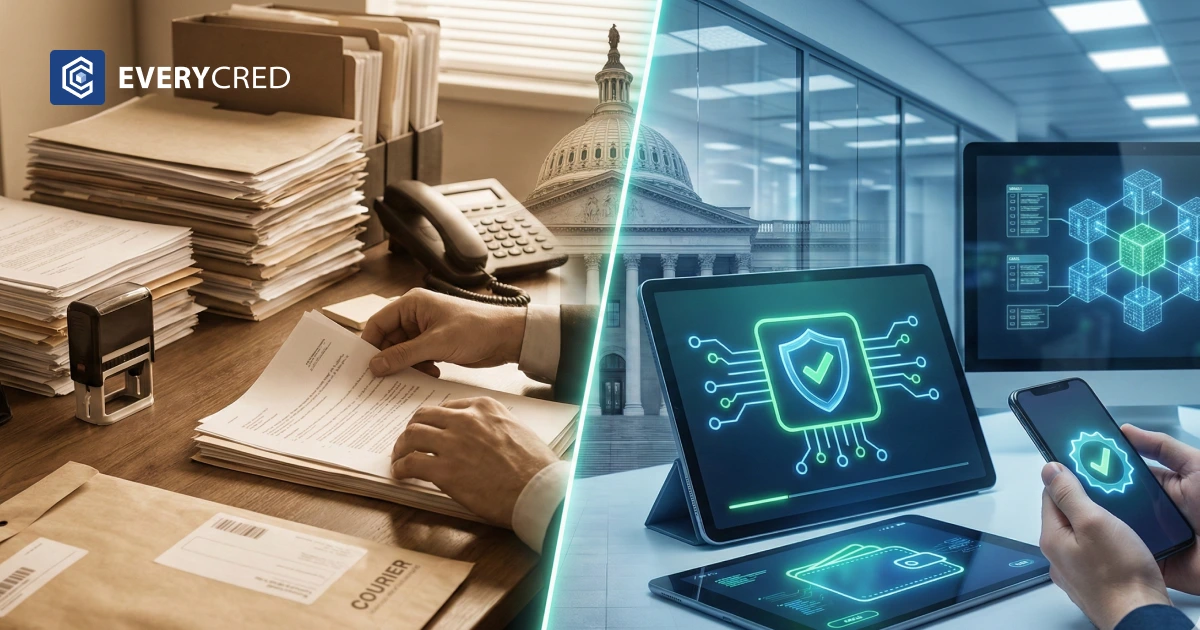
28 Jan, 2026
Blog
Government departments and Public Sector Undertakings (PSUs) in India handle high volumes of recruitment and procurement. Each hire or vendor onboarding requires a thorough check of educational and professional records. The efficiency of this process depends on the chosen method: manual or digital. This article analyzes the credential verification cost in India to assist public sector officials […]
Read post

 7 min read
7 min read

 7 min read
7 min read 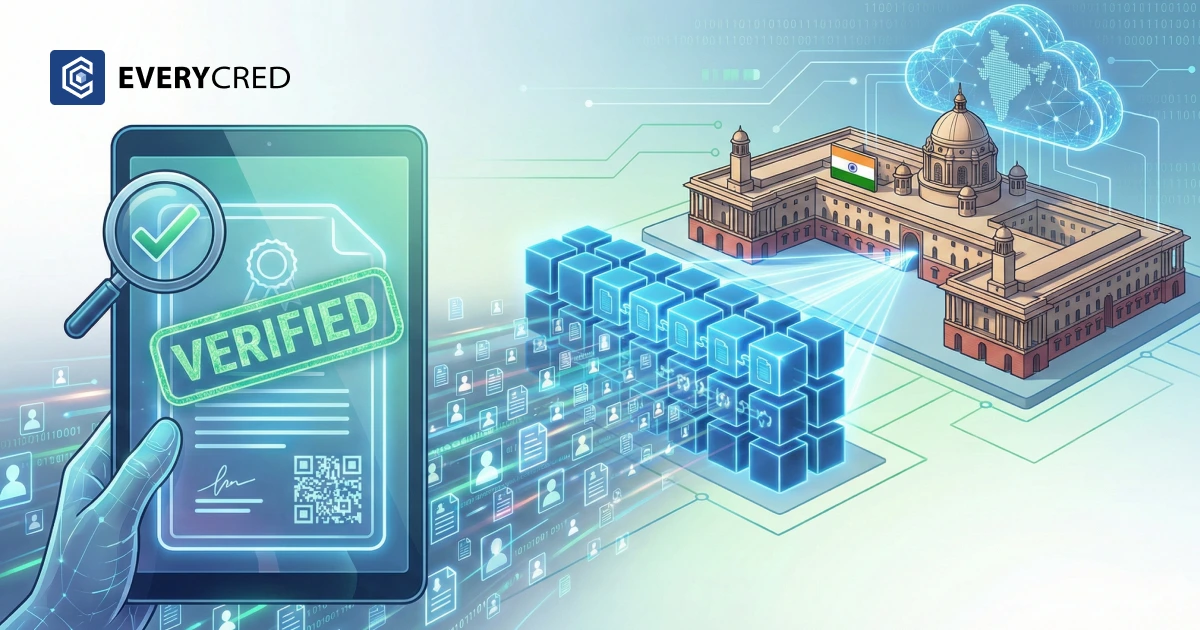
27 Jan, 2026
Blog
In the current recruitment landscape in India, government agencies manage millions of applications for various civil service and technical roles. Managing the document verification process for such volumes requires high operational efficiency and security. Large scale credential verification has moved from manual, paper-based checks to digital systems that utilize verifiable credentials to ensure the authenticity of candidate data. EveryCRED provides […]
Read post

 6 min read
6 min read

 6 min read
6 min read 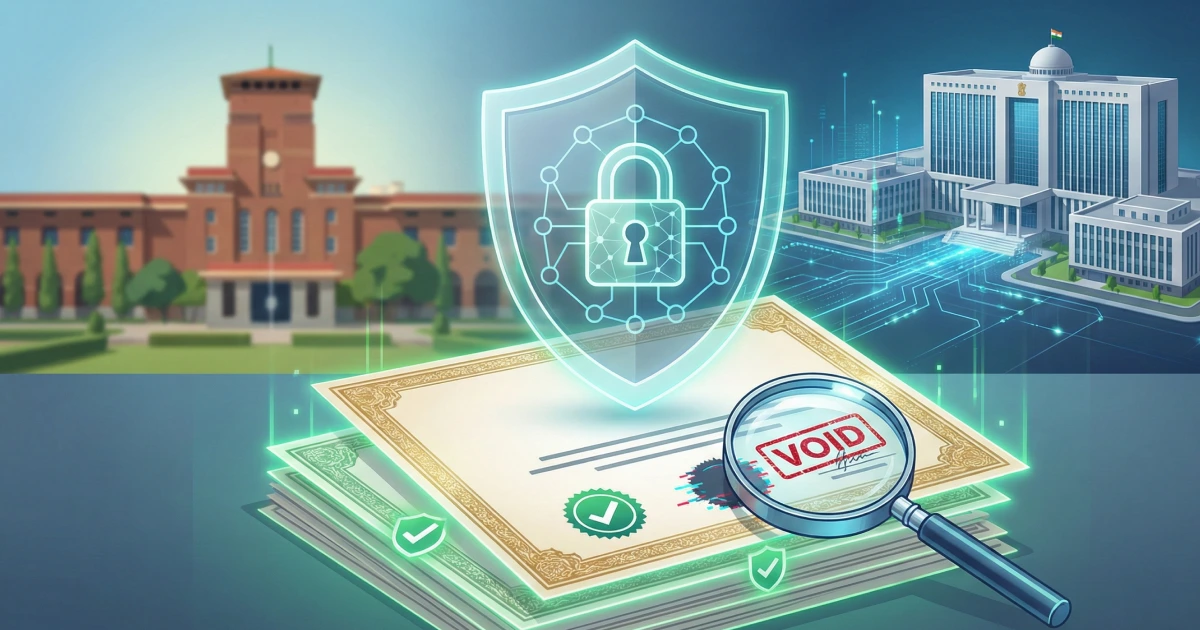
20 Jan, 2026
Blog
The prevalence of fraudulent academic records in India presents a significant challenge for government bodies and educational institutions. Recent data indicates that approximately 28% of job applicants in India submit documents with some form of educational discrepancy. For high-stakes recruitment in government and education sectors, the presence of unverified candidates compromises organizational integrity and public […]
Read post

 6 min read
6 min read

 6 min read
6 min read 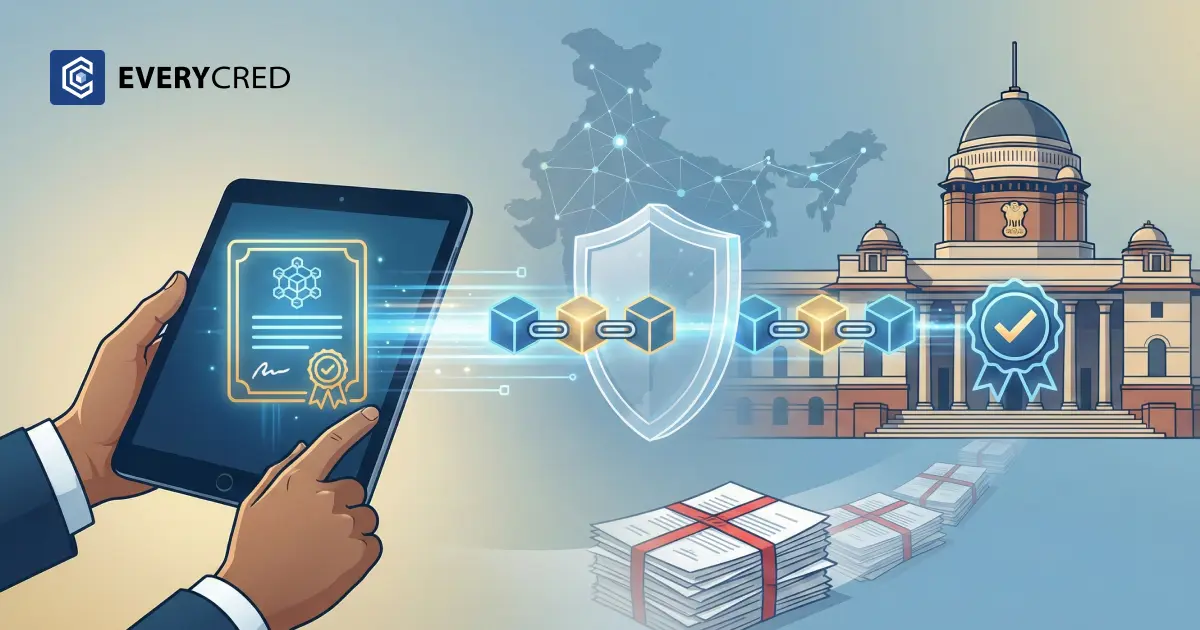
15 Jan, 2026
Blog
The recruitment aspect for Public Sector Undertakings (PSUs) and government ministries in India operates at a massive scale. Ensuring the integrity of this process is critical for national interests and organizational efficiency. A primary challenge in public sector hiring is the validation of academic and professional documents submitted by candidates. Traditional, manual methods of document […]
Read post

 6 min read
6 min read

 6 min read
6 min read 
12 Jan, 2026
Blog
The European Union public sector faces a significant challenge in talent acquisition. The need for specialized skills often requires hiring personnel from different member states. However, traditional methods of verifying academic and professional qualifications across borders create substantial delays. These delays hinder large-scale hiring programs essential for government operations. The adoption of cross border credential verification […]
Read post

 8 min read
8 min read

 8 min read
8 min read 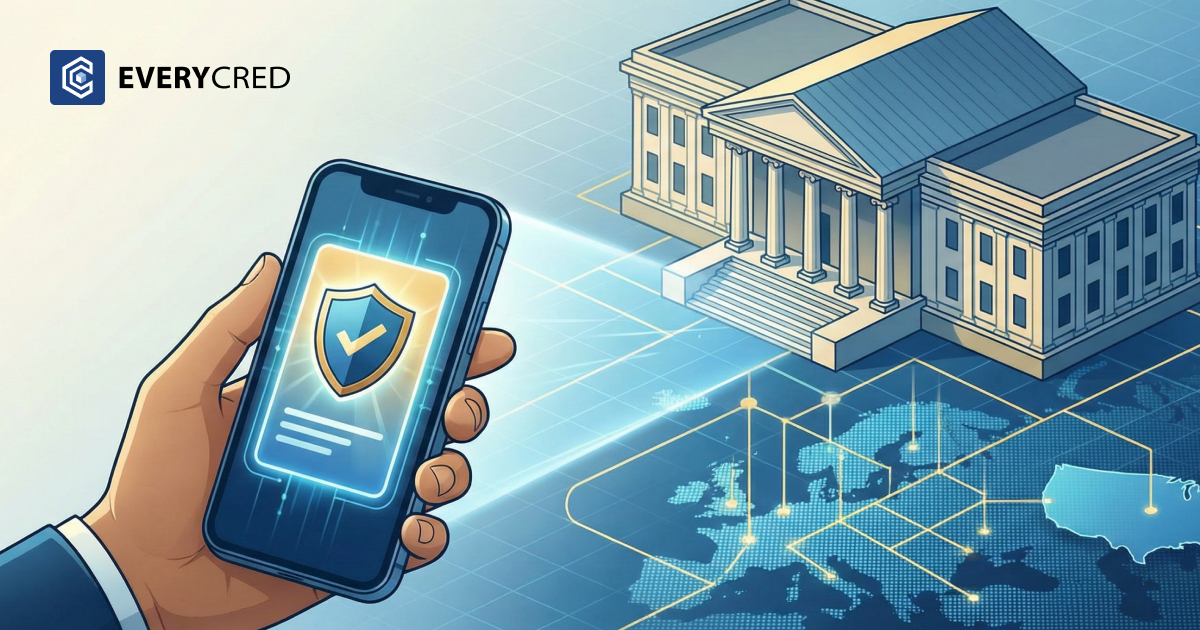
09 Jan, 2026
Blog
The transition toward decentralized digital identity is accelerating globally. In Europe, the eIDAS 2.0 regulation mandates that all Member States provide a European Digital Identity (EUDI) Wallet to citizens by 2026. This regulation fundamentally changes how government agencies handle identity and professional certifications. For public sector buyers in the US and Europe, procurement decisions now […]
Read post

 7 min read
7 min read

 7 min read
7 min read 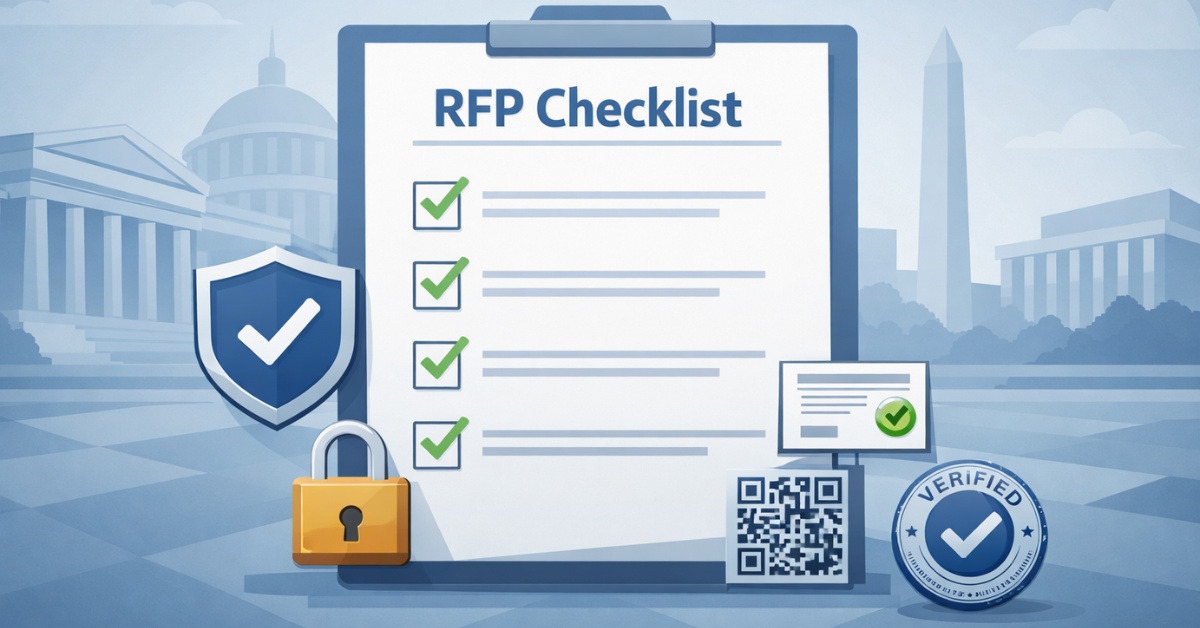
06 Jan, 2026
Checklist Content Type Decentralized Identity Digital Credential Solutions Digital Identity Verification Government Industry Topic
Credential verification solutions are software systems used by US government agencies to verify the authenticity, integrity, and issuer trust of digital or physical credentials (such as identity documents, licenses, certificates, clearances, or permits) during procurement and operational workflows. In an RFP (Request for Proposal) context, these solutions are evaluated against security, compliance, interoperability, auditability, and […]
Read post

 5 min read
5 min read

 5 min read
5 min read 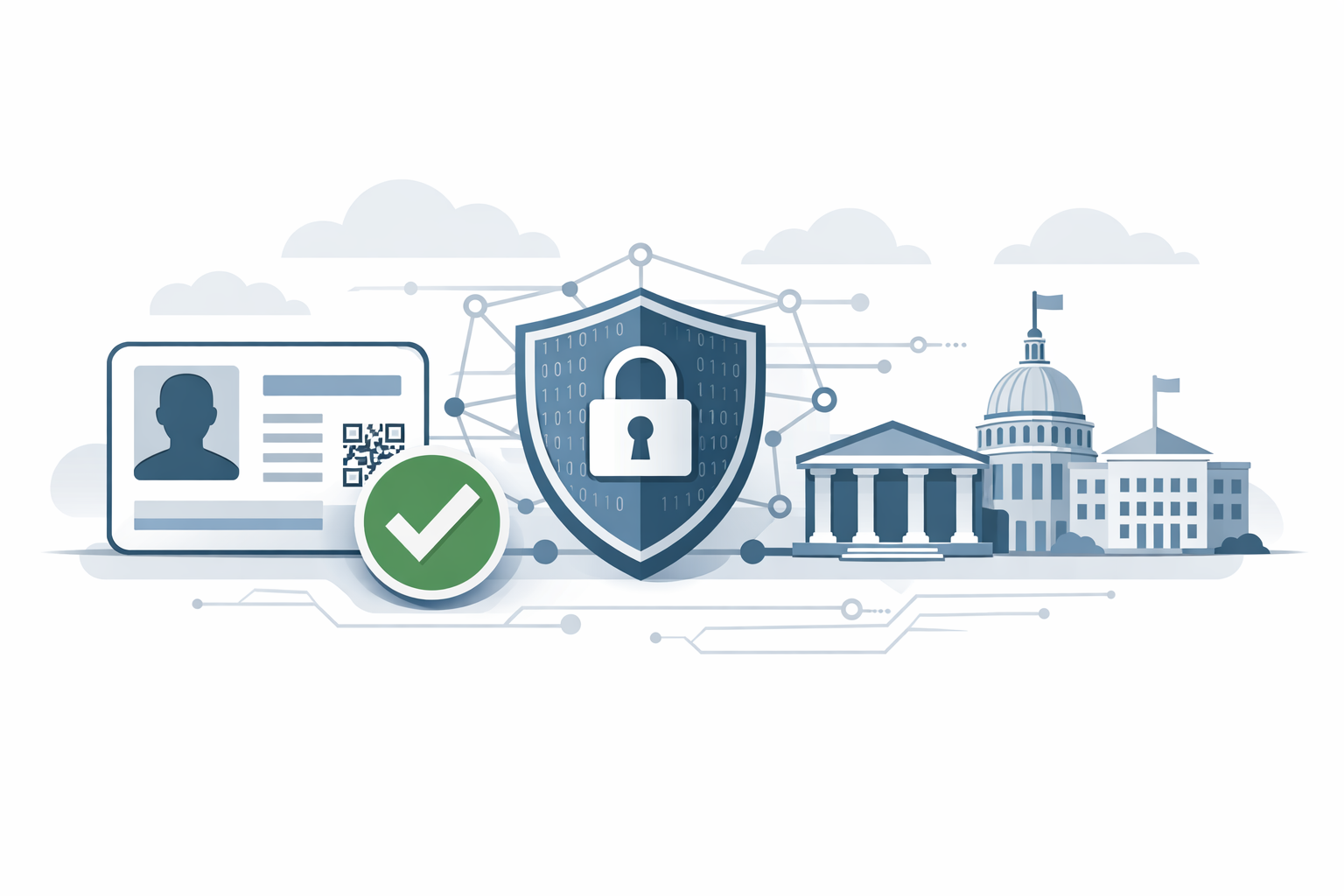
01 Jan, 2026
Content Type Decentralized Credentials Decentralized Identity Digital Credential Solutions Digital Identity Verification Guide Industry Public Sector Topic
Credential verification software for government agencies is a class of information systems used to issue, verify, and manage the authenticity of digital or physical credentials such as identity cards, licenses, permits, certifications, clearances, or eligibility documents used in government operations. These systems ensure that credentials presented by individuals or organizations are valid, untampered, and issued […]
Read post

 6 min read
6 min read

 6 min read
6 min read 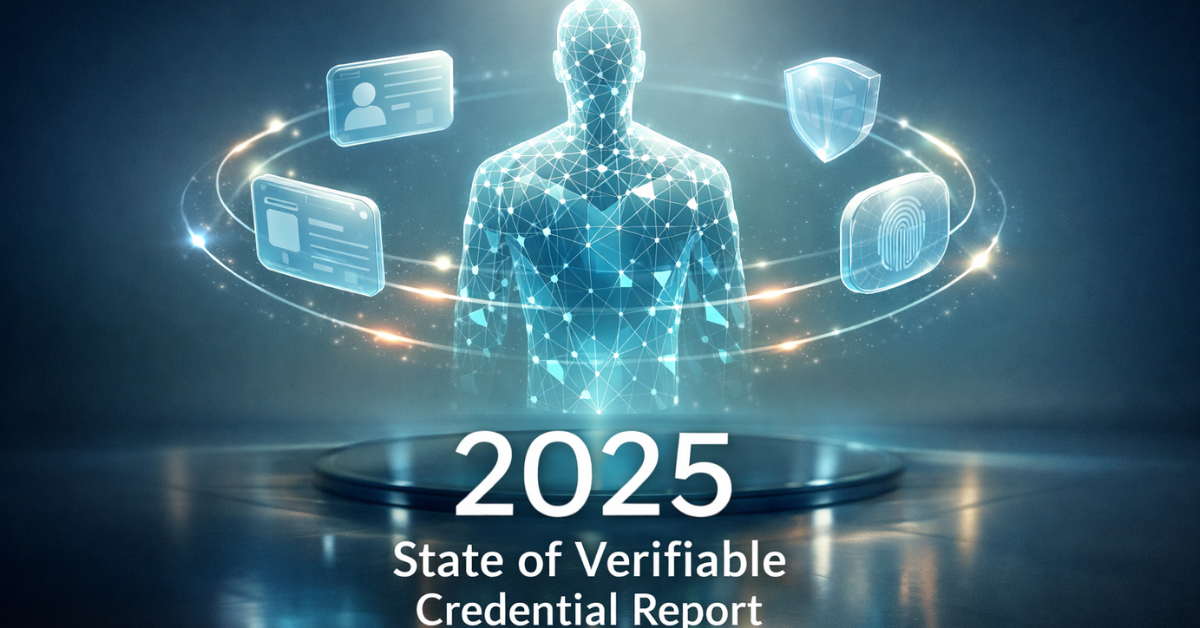
30 Dec, 2025
Content Type Report Topic Verifiable Credentials
The Verifiable Credentials (VC) and Decentralized Identity (DID) ecosystem reached a critical inflection point in 2025, transitioning from research-driven pilots to compliance-driven production deployment. Propelled by regulatory mandates, particularly the European Union’s eIDAS 2.0 framework and the proliferation of US mobile driver’s licenses (mDLs), the market has bifurcated into two dominant adoption tracks: Government-Backed Citizen Identity and Enterprise Workforce Access Management. The […]
Read post

 35 min read
35 min read

 35 min read
35 min read 
24 Dec, 2025
Blog Content Type Decentralized Credentials Decentralized Identity Digital Credential Solutions Digital Identity Verification Industry Law Enforcement Topic
Courts rarely question police identity. They inherit it. That assumption worked in a paper-based world. It fails in a digital one. Impersonation, outdated authorizations, and weak audit trails now create real grounds for appeal, even when evidence itself is valid. This is no longer a policing issue. It is judicial risk management. Below are the […]
Read post

 7 min read
7 min read

 7 min read
7 min read 
23 Dec, 2025
Blog Content Type Decentralized Credentials Digital Credential Solutions Digital Identity Verification Digital Trust Ecosystem Human Resource Industry Topic Verifiable Credentials
In 2026, hiring will quietly cross a line. What used to be a best practice will become a baseline requirement. What used to be “trust-based hiring” will shift to proof-based hiring. At the center of this shift are blockchain-verified certificates and verified licenses not as a tech trend, but as a direct response to fake […]
Read post

 5 min read
5 min read

 5 min read
5 min read 
20 Dec, 2025
Blog Content Type Decentralized Credentials Decentralized Identity Digital Credential Solutions Digital Identity Verification Digital Trust Ecosystem Education Industry Topic
Credentialing trends for 2026 are shifting from experimentation to enforcement. AI will automate verification, blockchain will anchor trust, and compliance will dictate architecture. The winners will be systems that issue, verify, revoke, and audit credentials in real time without user friction. What Actually Changes in Digital Credentialing by 2026 Why Credentialing Quietly Breaks at Scale […]
Read post

 4 min read
4 min read

 4 min read
4 min read 
18 Dec, 2025
Blog Content Type Decentralized Credentials Digital Credential Solutions Digital Identity Verification Industry Topic
By 2026, AI will automate the credential journey from diploma to workforce license by turning issuance, verification, and licensing into a single, connected workflow. Digital diplomas become machine-readable credentials; AI systems verify them against rules and registries; and licenses are issued or renewed with minimal human intervention. Institutions reduce backlogs and compliance risk, while professionals […]
Read post

 6 min read
6 min read

 6 min read
6 min read 
16 Dec, 2025
Blog Content Type Decentralized Credentials Digital Identity Verification Digital Trust Ecosystem Industry Public Sector Topic
A state digital identity wallet is a secure mobile application that lets residents store and share government-backed digital credentials such as IDs, licenses, and permits using Verifiable Credentials under a clear legal, security, and governance framework. It enables trusted, privacy-preserving verification across agencies and private-sector partners while reducing fraud and friction in public services. For […]
Read post

 16 min read
16 min read

 16 min read
16 min read 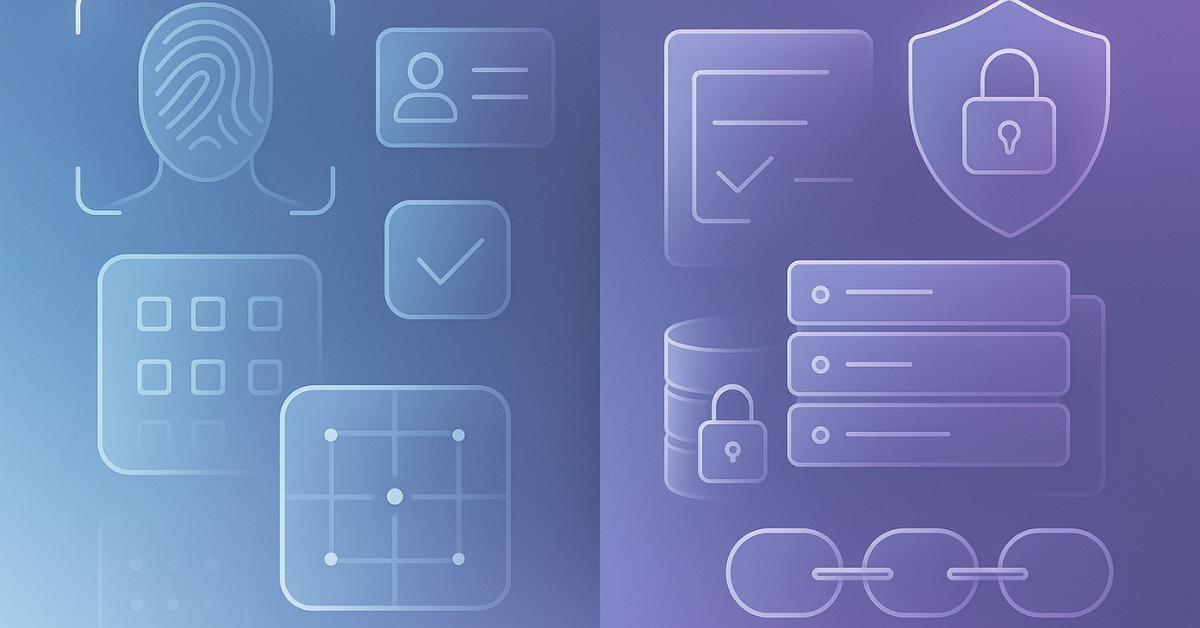
13 Dec, 2025
Blog Content Type Digital Identity Verification Education Industry Public Sector Topic Verifiable Credentials Zero-Knowledge Proofs
Identity proofing can confirm who someone is but it cannot verify what they are legitimately qualified to do. That gap is why credentialing fraud will continue rising in 2026, even as ID verification systems like 1Kosmos expand across government, enterprise, and regulated industries. This comparison explains why identity teams and compliance officers can no longer […]
Read post

 5 min read
5 min read

 5 min read
5 min read 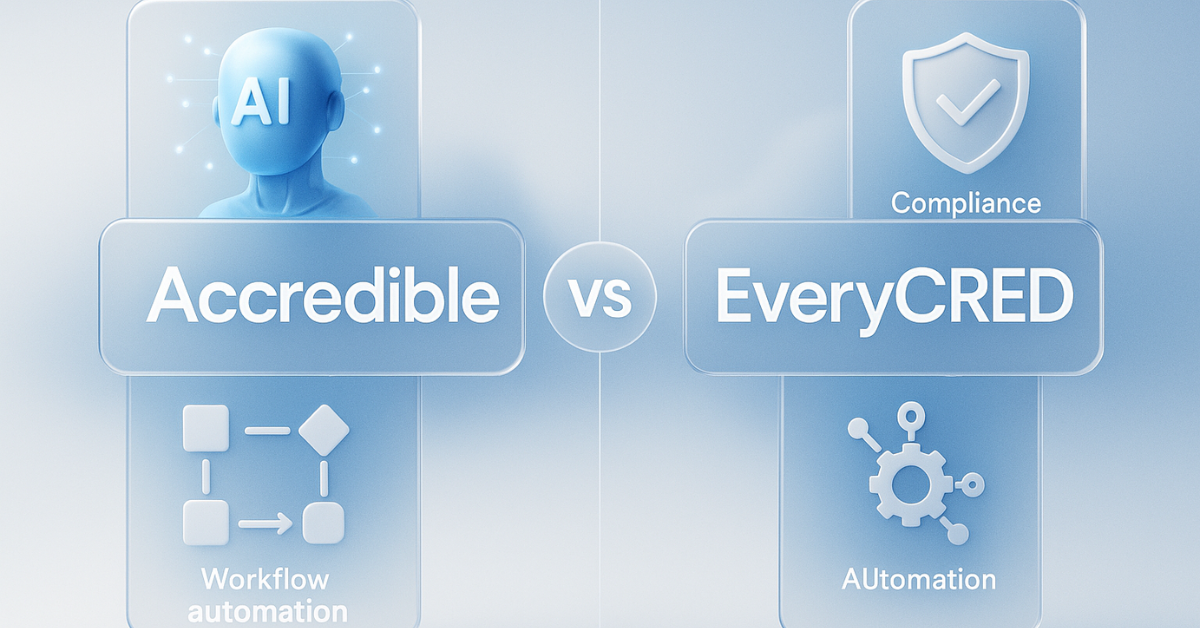
11 Dec, 2025
Blog Content Type Digital Credential Solutions Digital Identity Verification Education Industry Topic
For universities, certification bodies, and global employers planning a 2026 upgrade, Accredible is a strong choice if you mainly need polished digital certificates and badges layered on top of existing LMS workflows, while EveryCRED is better if you need verifiable, standards-based credentials, stricter compliance, and cross-sector workflows that extend beyond education into workforce and regulated […]
Read post

 11 min read
11 min read

 11 min read
11 min read 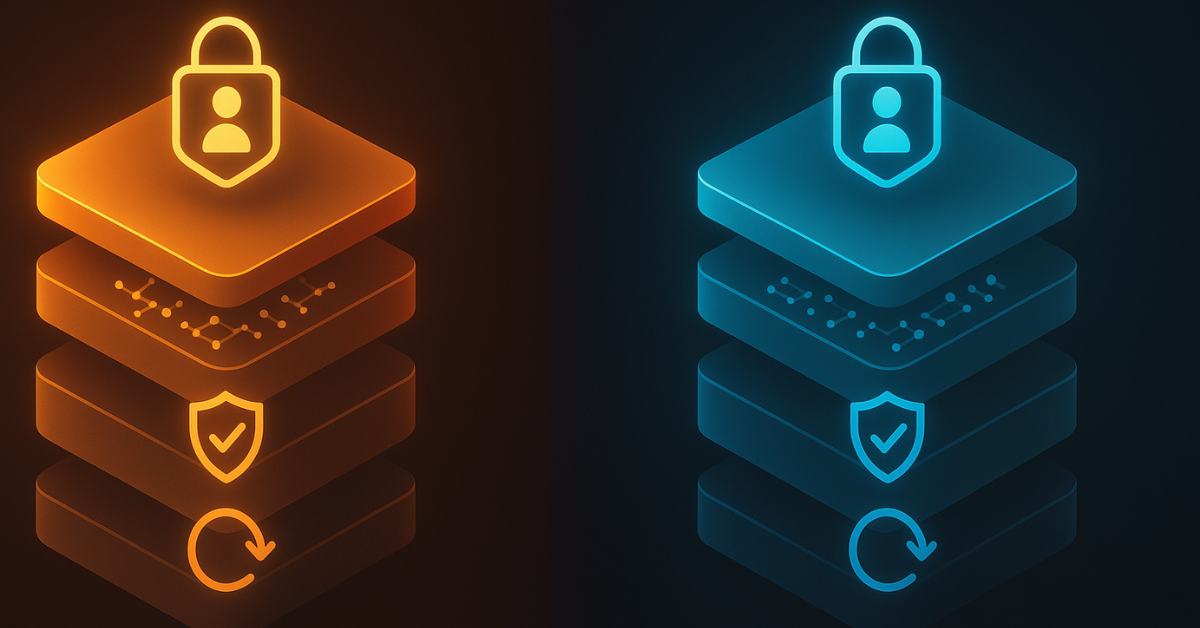
09 Dec, 2025
Blog Content Type Digital Credential Solutions Education Industry Topic Verifiable Credentials
Digital credentialing has entered its government era. Agencies, universities, and regulated industries are moving from simple badges to tamper-evident, cryptographically verifiable credentials that stand up in audits, courts, and cross-sector verification systems. Two platforms inevitably appear in every procurement shortlist: Credly and EveryCRED. Both help institutions issue credentials. But only one is built for the […]
Read post

 7 min read
7 min read

 7 min read
7 min read 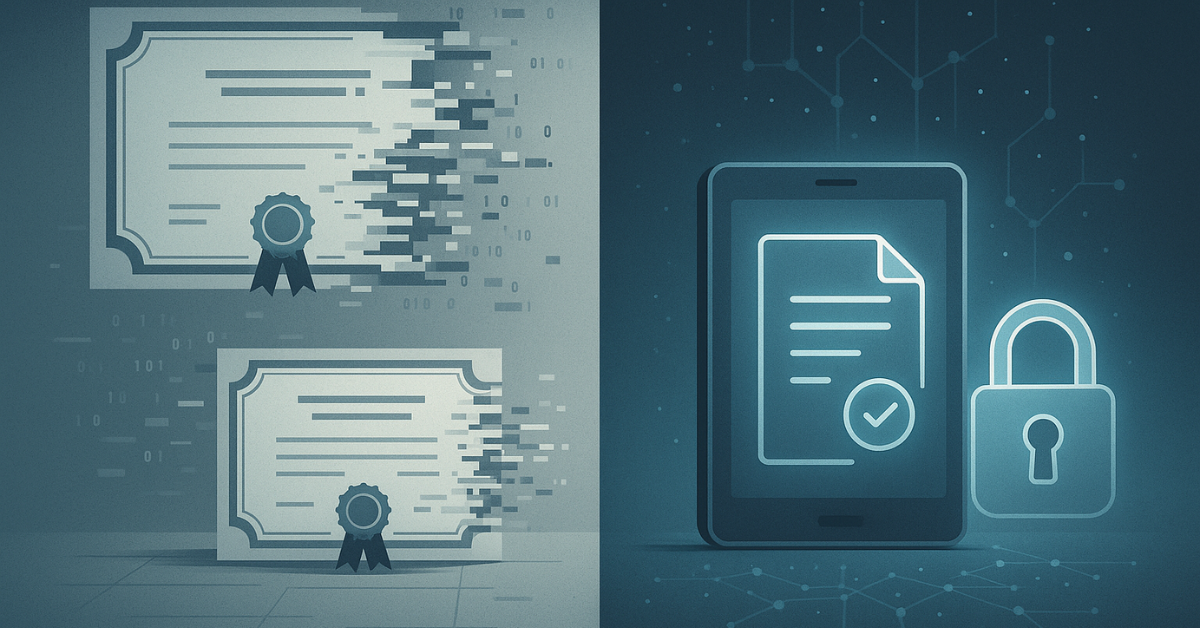
06 Dec, 2025
Content Type Credential Fraud Perspective Topic
Synthetic credential fraud — AI-generated certificates, fake degrees, tampered PDFs, and fabricated issuer sites — grew faster than any other credential-related threat in 2025. Europe recorded the sharpest increase globally, with fraud rings using generative AI to mass-produce “credible-looking” documents that bypass traditional verification. Regional growth in synthetic credential fraud: Within Europe, credential fraud grew […]
Read post

 8 min read
8 min read

 8 min read
8 min read 
04 Dec, 2025
Blog Content Type Education eIDAS 2.0 Industry Public Sector Topic
eIDAS 2.0 will be fully shaping digital identity, credentials, and trust services across the EU by 2026, and universities, employers, and public sector teams need concrete plans now to stay compliant and avoid disruption. This guide breaks down what eIDAS 2.0 changes, what is mandatory by when, and how to choose practical solutions and vendors […]
Read post

 8 min read
8 min read

 8 min read
8 min read 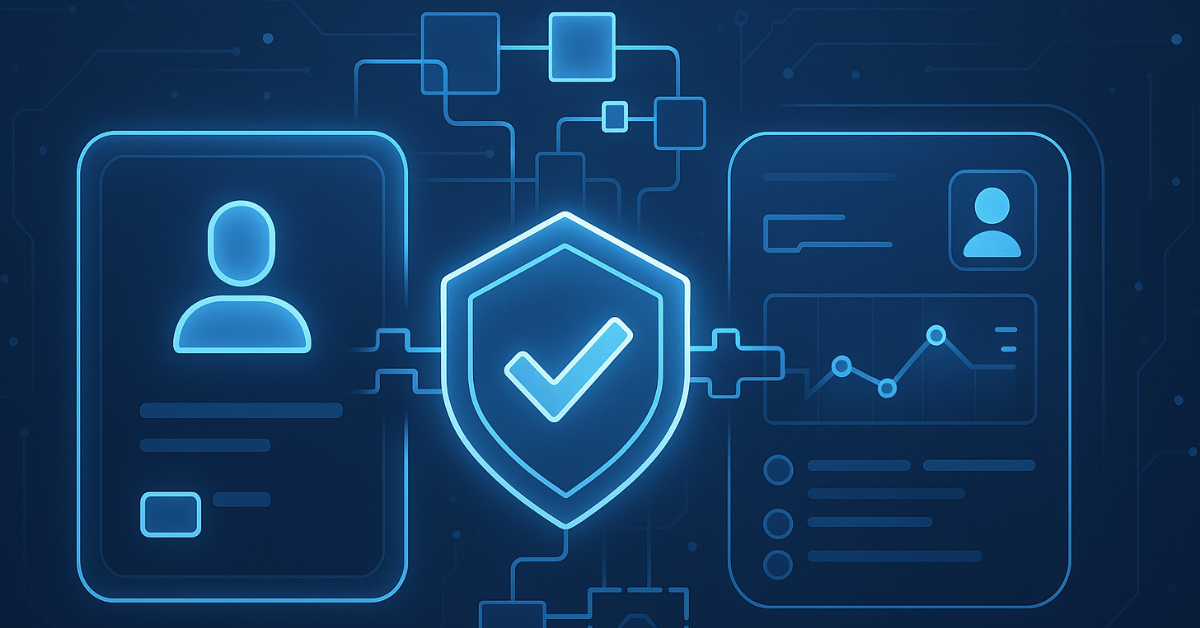
02 Dec, 2025
Blog Content Type Digital Credential Solutions Digital Identity Verification Education Industry Public Sector Topic Verifiable Credentials
In 2026, AI-powered credential verification will automate academic record validation, eliminate manual document checks, and reduce fraud for governments and universities inside a global identity verification market projected to grow from about USD 14.0 billion in 2025 to USD 57.5 billion by 2034 at a 17% CAGR. As North America alone is expected to hold […]
Read post

 6 min read
6 min read

 6 min read
6 min read 
27 Nov, 2025
Blog Content Type Digital Credential Solutions Digital Identity Verification Industry Topic
Verify With EveryCred is a campaign story about how EveryCRED turns fragmented, local credential checks into a single borderless trust network that anyone can verify in one click. The blog should show how digital, tamper-proof credentials rebuild user trust and brand transparency across countries, industries, and platforms. What problem does Verify With EveryCred solve? Most […]
Read post

 7 min read
7 min read

 7 min read
7 min read 
25 Nov, 2025
Blog Content Type Digital Credential Solutions Digital Identity Verification Education Industry Verifiable Credentials
Legacy degree systems slow recruitment because analog records are hard to verify and share. Employers face delays and uncertainty when vetting a candidate’s credentials, while graduates struggle with lost or inaccessible paperwork. Moving to digital diplomas and verifiable badges solves this by giving institutions, students, and employers secure, instant access to academic proof. The global […]
Read post

 6 min read
6 min read

 6 min read
6 min read 
20 Nov, 2025
Automobile Blog Content Type Digital Credential Solutions Industry Topic Verifiable Credentials
The automotive industry is undergoing a transformation driven by stricter safety regulations, globalized supply chains, and the rapid digitalization of compliance workflows. Imagine an OEM facing a sudden regulatory audit—without blockchain-powered credentials, tracking authenticity for hundreds of sprawling suppliers and thousands of components is slow, error-prone, and leaves the business vulnerable to costly recalls or […]
Read post

 5 min read
5 min read

 5 min read
5 min read 
18 Nov, 2025
Blog Content Type Digital Credential Solutions Digital Trust Ecosystem Industry Supply Chain Topic Verifiable Credentials
Verifiable credentials in supply chain trust are transforming how the manufacturing world tracks, proves, and verifies every link in its network. A global electronics manufacturer recently received an urgent call: a batch of high-value components in transit had vanished after reaching a foreign port. Each hour of delay cost millions in production downtime, and no […]
Read post

 5 min read
5 min read

 5 min read
5 min read 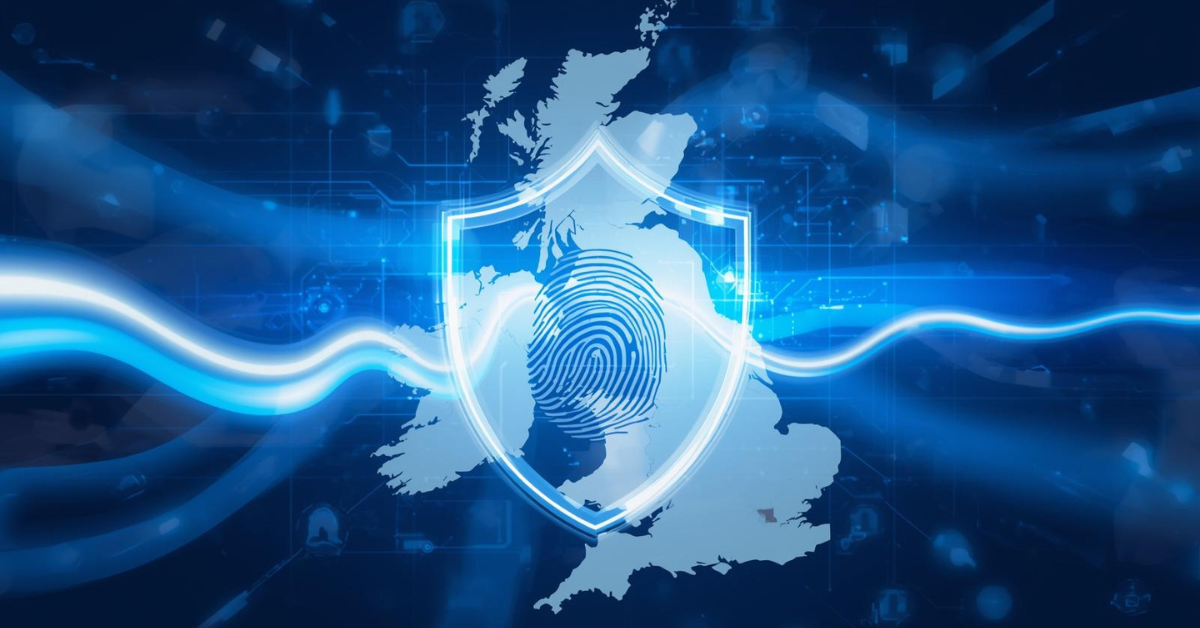
13 Nov, 2025
Blog Content Type Digital Identity Verification Digital Trust Ecosystem Industry Public Sector Topic
The UK Digital Identity & Attributes Trust Framework is the official set of government rules and standards defining what makes a reliable, secure, and trustworthy digital identity service. Created after extensive collaboration with industry, public stakeholders, and academia, the framework provides a common language and baseline quality for digital identity solutions across the UK market. […]
Read post

 7 min read
7 min read

 7 min read
7 min read 
11 Nov, 2025
Blog Content Type Digital Credential Solutions Digital Identity Verification Education Industry Topic Verifiable Credentials
Academic credential verification is the foundation of global student mobility. When students move across borders to study or work, their qualifications must speak for them accurately and instantly. Yet in today’s fragmented education ecosystem, verifying academic records remains slow, manual, and vulnerable to fraud. According to a 2023 UNESCO report, credential fraud accounts for nearly […]
Read post

 7 min read
7 min read

 7 min read
7 min read 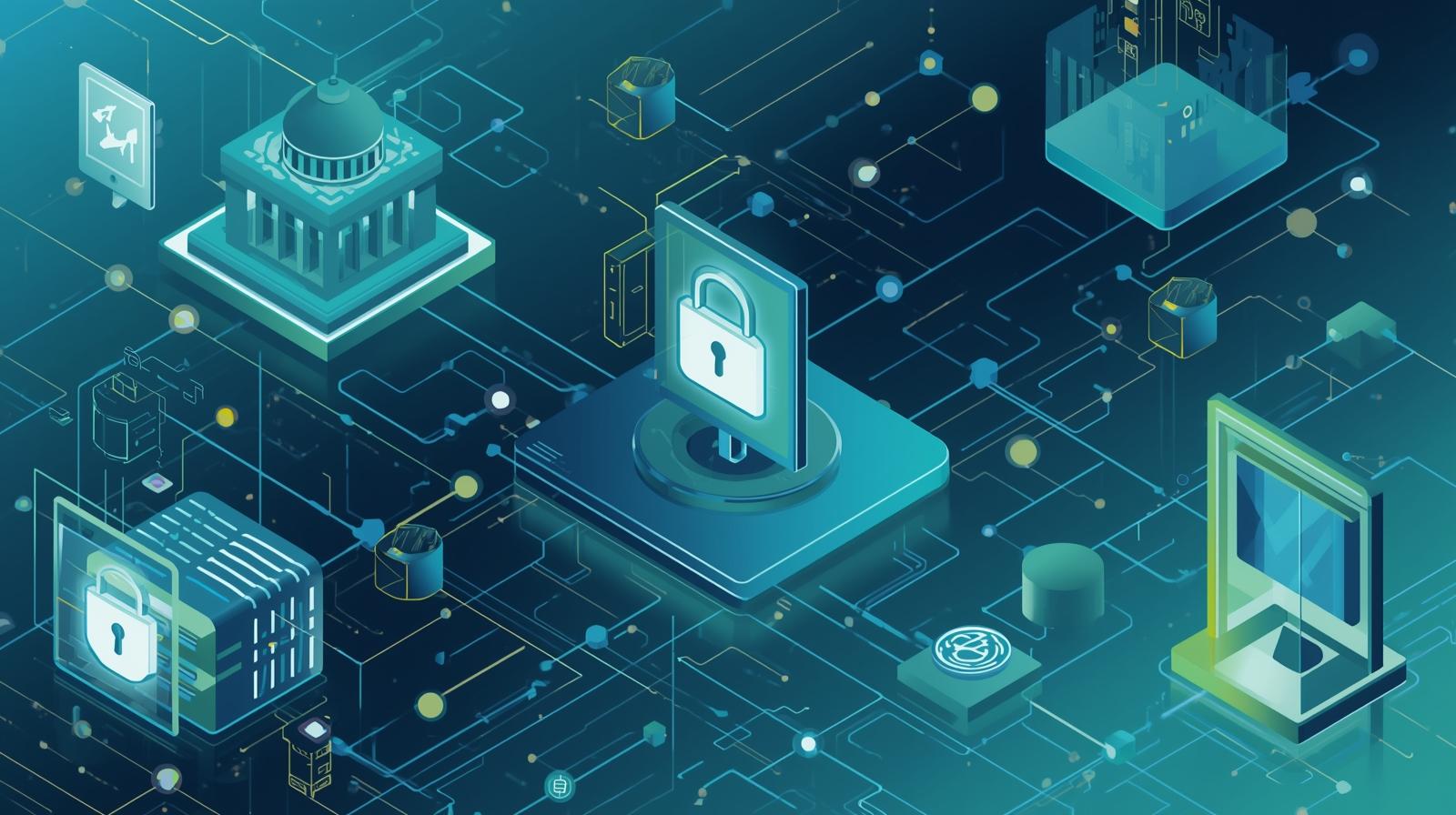
06 Nov, 2025
Blog Content Type Digital Credential Solutions Digital Trust Ecosystem Digital Trust Ecosystem Public Sector
Governments are transforming how public services operate by building digital trust ecosystems using blockchain. This approach boosts transparency, enhances verification of digital identities, and enables citizens to interact securely with digital services. The global digital identity in government sector market is projected to grow from $3.79 billion in 2025 to $16.56 billion by 2035, at […]
Read post

 8 min read
8 min read

 8 min read
8 min read 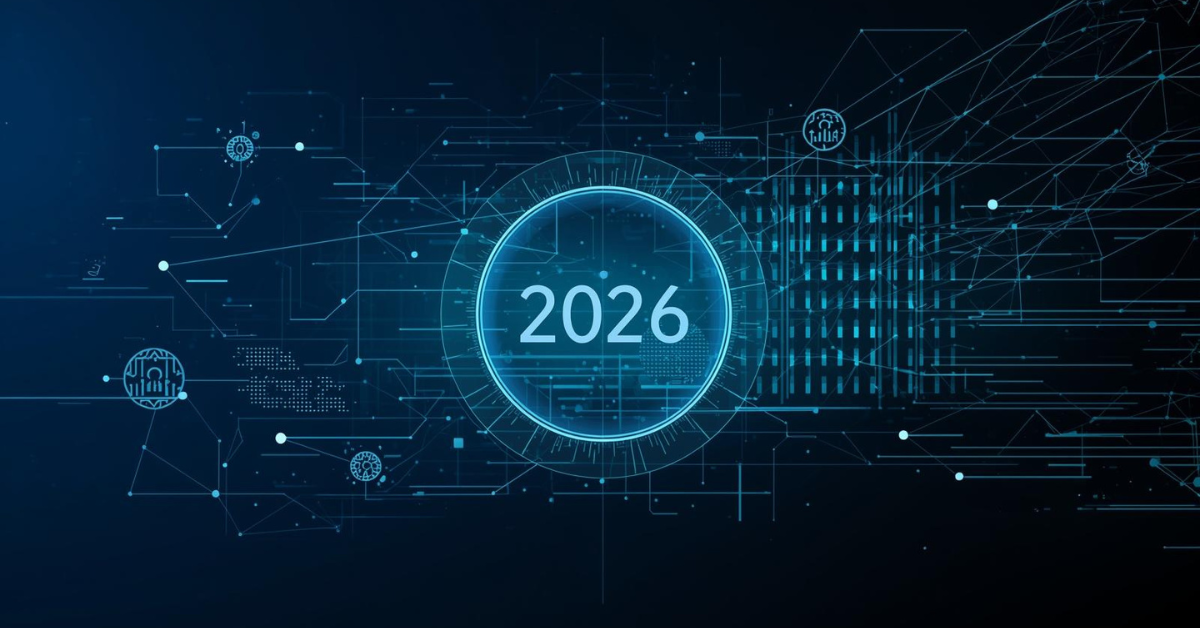
04 Nov, 2025
Blog Content Type Topic Verifiable Credentials
Digital trust is not just a buzzword—it’s your gateway to secure interactions, seamless business, and confident identity management in an age dominated by data breaches and privacy scandals. In fact, according to Gartner, by 2026, more than 60% of enterprises globally will use verifiable credentials as a core function of their digital identity strategy. This […]
Read post

 7 min read
7 min read

 7 min read
7 min read 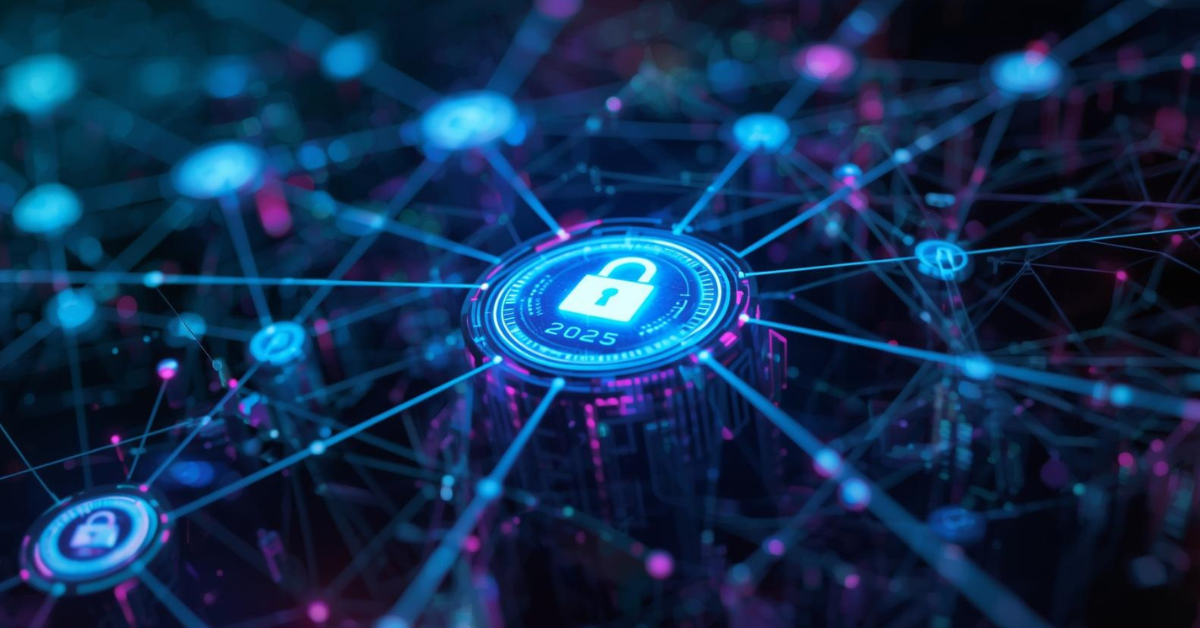
28 Oct, 2025
Blog Content Type DigiLocker Usecases Digital Credential Solutions Education Industry Topic
Digital identity verification has become a critical priority for professionals across banking, fintech, and government sectors as they face increasing pressure to secure digital transactions and verify users seamlessly. As digital interactions surge, ensuring trust, compliance, and fraud prevention has become more complex than ever. The global identity verification market size is estimated at approximately […]
Read post

 7 min read
7 min read

 7 min read
7 min read 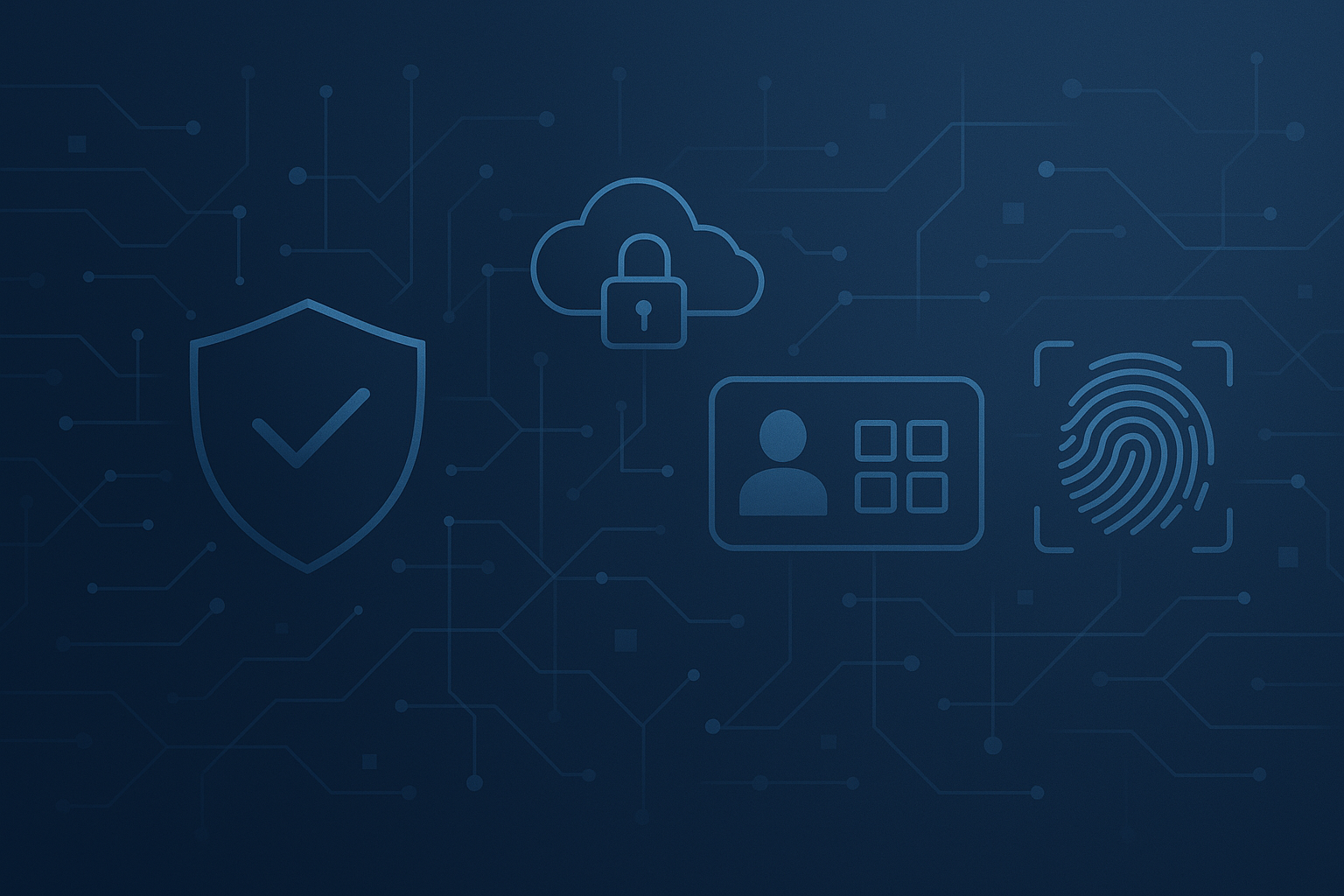
16 Oct, 2025
Every large enterprise today manages hundreds or even thousands of digital identities across systems, devices, and locations. Employees, partners, and customers all need fast, secure access to the right data. But managing that access manually or with outdated tools often leads to security gaps, compliance risks, and rising IT overhead. The digital identity solutions market […]
Read post

 8 min read
8 min read

 8 min read
8 min read 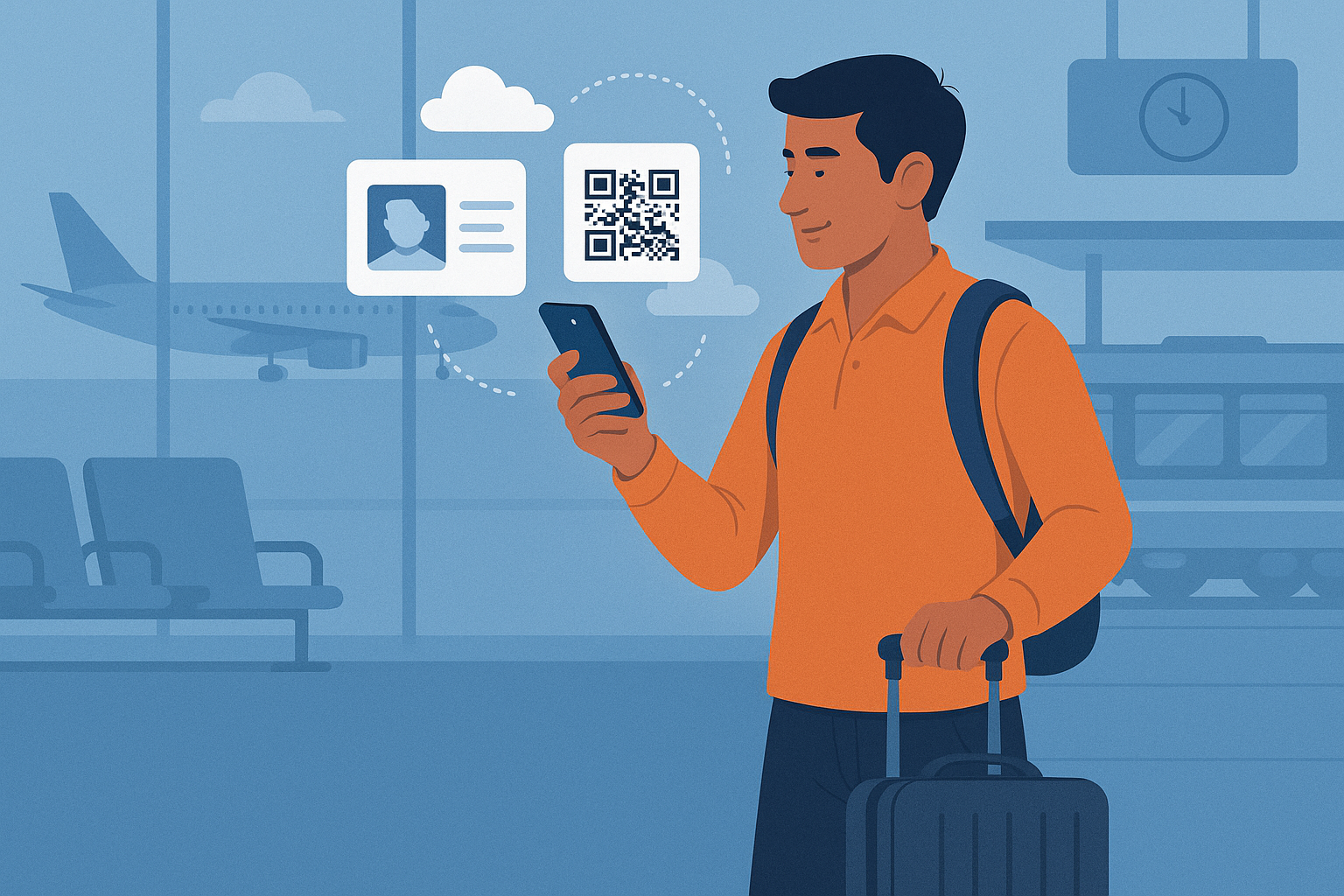
14 Oct, 2025
Blog Content Type DigiLocker Usecases DigiLocker Usecases Industry SSI Topic Travel Verifiable Credentials
For millions of passengers traveling by railways or air, travel ID verification has always been a cumbersome task. Carrying physical photo IDs like Aadhar cards, PAN cards, or passports along with tickets increases the risk of damage, theft, or tampering. TTEs (Travelling Ticket Examiners) in trains and CISF personnel at airports often face delays while […]
Read post

 7 min read
7 min read

 7 min read
7 min read 
09 Oct, 2025
The Indian identity verification market, driven by KYC norms, fintech, and digital-first governance, is projected to grow at 15–16% CAGR through 2033, set to reach over USD 1.7 billion by 2033. Last year, I was stopped at a traffic signal and realized I had no copy of my RC or license. My phone battery was […]
Read post

 9 min read
9 min read

 9 min read
9 min read 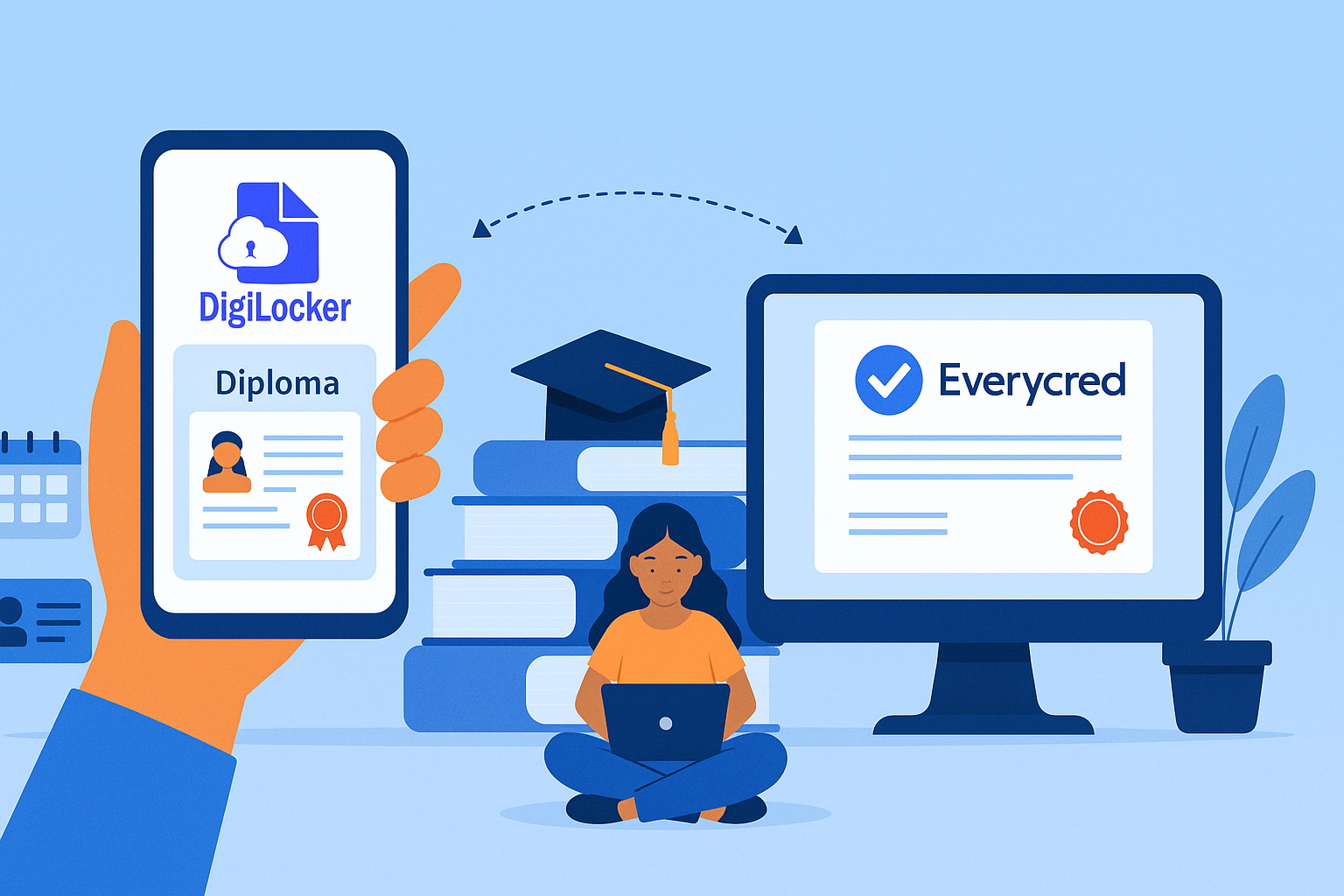
07 Oct, 2025
Blog Content Type DigiLocker Usecases DigiLocker Usecases Education Industry Topic
DigiLocker, launched under the Government of India’s Digital India initiative, is a secure online platform by MeitY that allows citizens to store, access, and share verified documents digitally. In education, it has transformed how academic records are managed. Students no longer wait weeks for printed mark-sheets or certificates, they can instantly access verified digital records […]
Read post

 8 min read
8 min read

 8 min read
8 min read 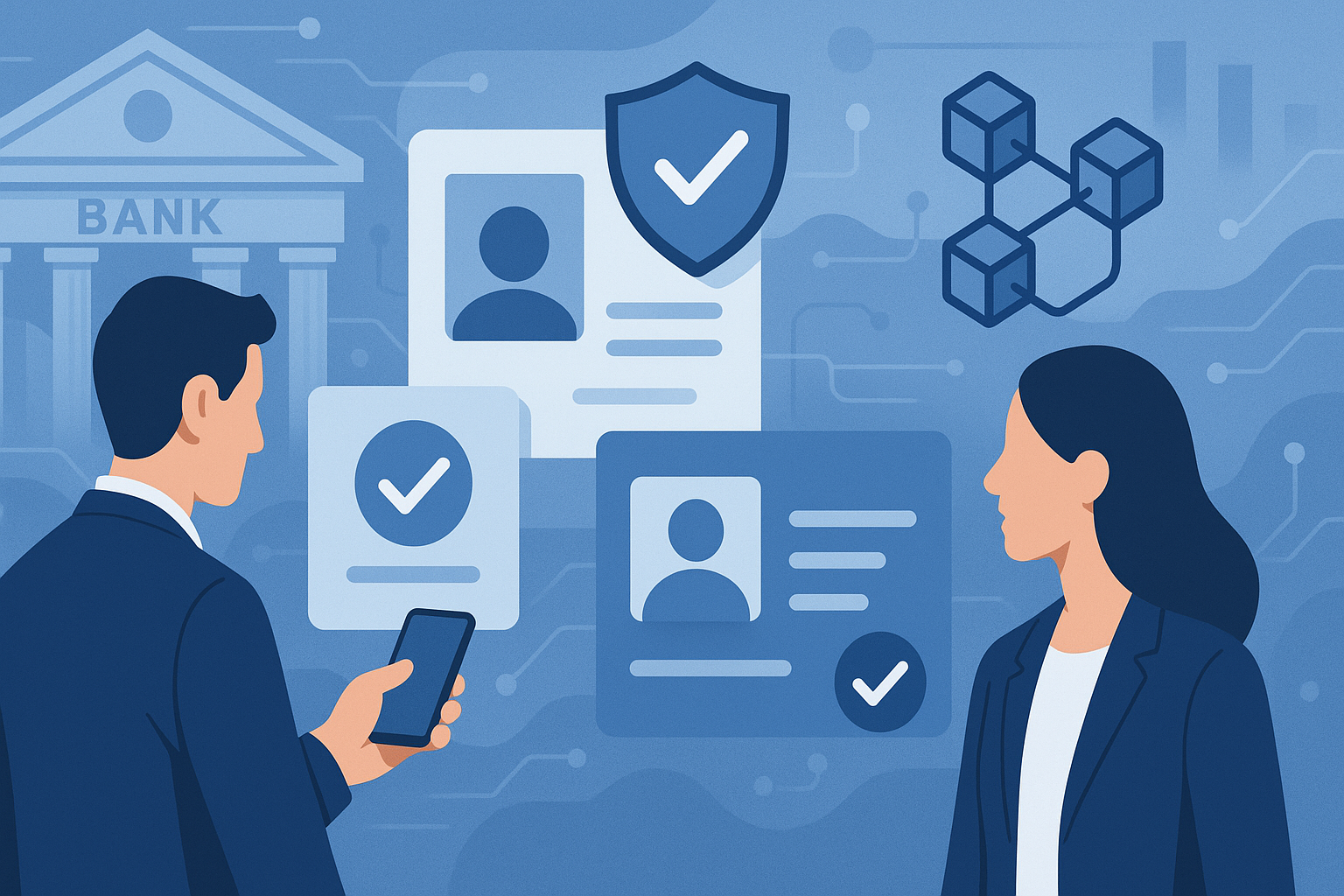
25 Sep, 2025
Banks have tested verifiable credentials in pilots for years. The idea sounds great on paper: faster onboarding, stronger compliance, and less fraud. But most banking leaders still ask the same question — has any bank scaled it for real? The answer is yes. Several major banks now run live deployments. They use verifiable credentials not […]
Read post

 12 min read
12 min read

 12 min read
12 min read 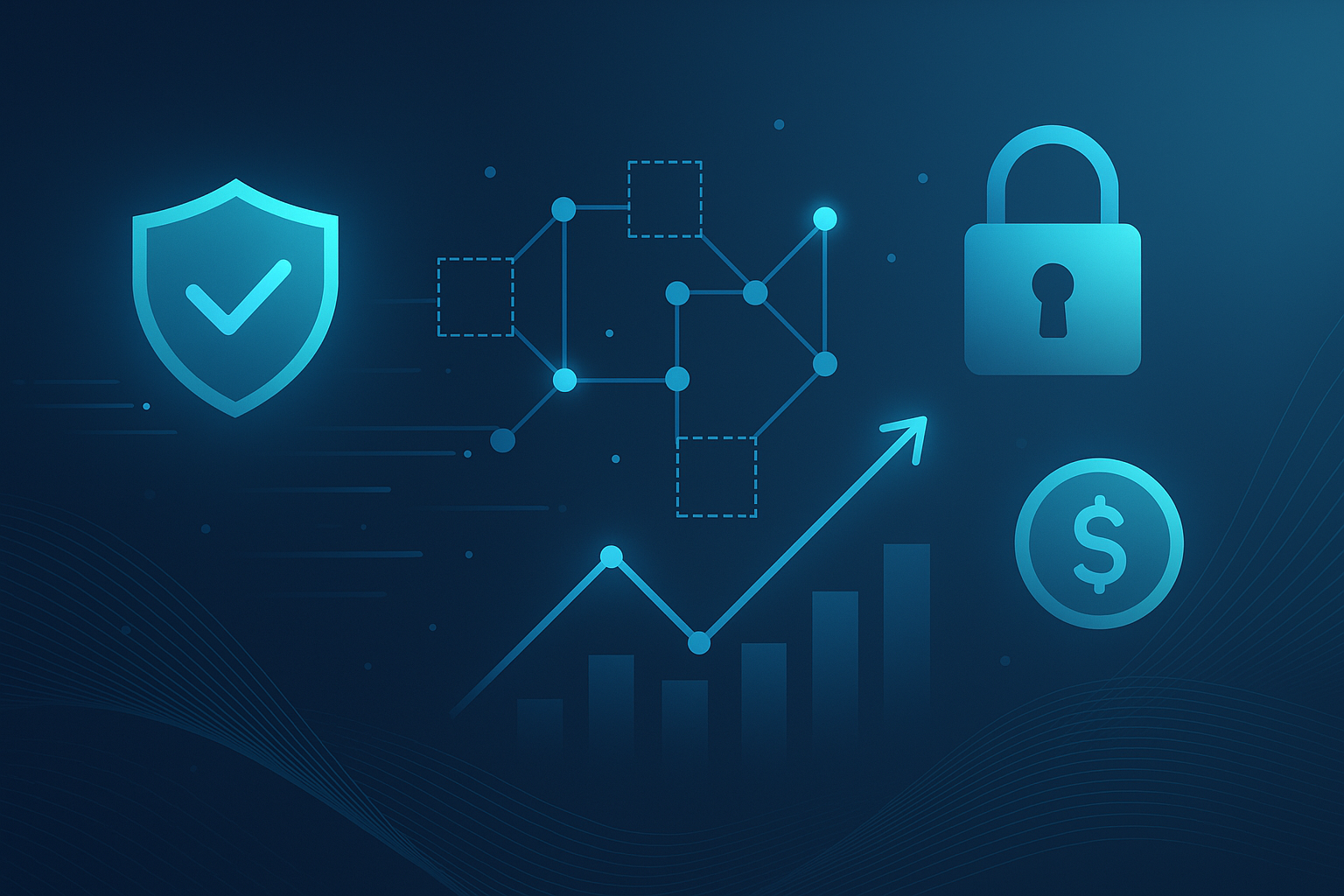
23 Sep, 2025
Blog Content Type Finance Industry Public Sector Topic Verifiable Credentials
Verifiable claims help people and organizations prove information they share is true. They make it easy to check credentials quickly and safely. By using verifiable claims, schools, banks, and businesses build trust, reduce errors, and keep data secure. In 2023, U.S. government agencies lost more than $200 billion to improper payments, according to reports from […]
Read post

 7 min read
7 min read

 7 min read
7 min read 
18 Sep, 2025
Blog Content Type Digital Credential Solutions Healthcare Industry Self-sovereign Identity SSI Topic
SSI Verifiable Claims are driving explosive growth in the healthcare market as payers and providers prioritize fraud prevention, interoperability, and regulatory compliance. In 2025, the global SSI market is valued at approximately $3.5 billion and is projected to reach $65-$1,153 billion by 2034, with healthcare representing one of the fastest-growing segments. What Are SSI Verifiable […]
Read post

 6 min read
6 min read

 6 min read
6 min read 
16 Sep, 2025
Blog Content Type Decentralized Credentials Decentralized Identity Digital Credential Solutions Education Industry Topic Zero-Knowledge Proofs ZKPs
Italian LMS platforms issue millions of digital certificates every year. Students need to prove their degrees, transcripts, and badges quickly. But most of these records cannot be verified instantly. They often rely on slow, manual checks. This creates delays, risks, and frustration for both students and institutions. In 2024, the Italian EdTech market is valued […]
Read post

 7 min read
7 min read

 7 min read
7 min read 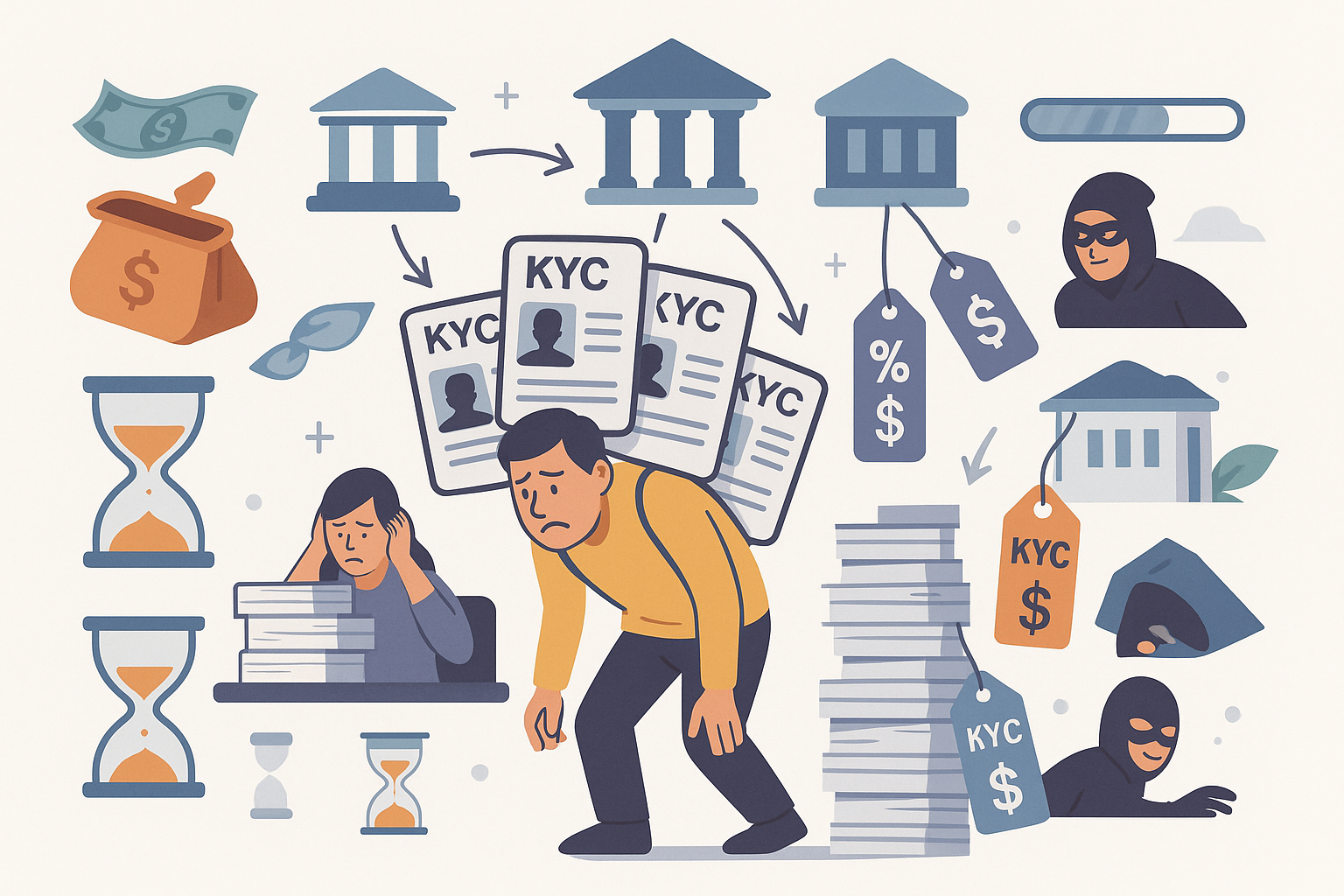
11 Sep, 2025
Blog Content Type Finance Industry SSI Topic Verifiable Credentials
Banks and fintechs spend a huge amount of time and money on KYC checks. Every new account, loan, or payment service requires another round of identity verification. For customers, this means filling out the same forms again and again. For financial institutions, it means higher costs, longer onboarding times, and more room for mistakes. Fraud […]
Read post

 6 min read
6 min read

 6 min read
6 min read 
10 Sep, 2025
Blog Content Type Education Industry Topic Zero-Knowledge Proofs ZKPs
Zero-Knowledge Proofs are emerging as a powerful solution for Italy’s universities. Exam fraud is increasing. Data privacy rules like GDPR put pressure on administrators. At the same time, students expect more trust and transparency. The global ZKP market is estimated to have reached between $1.37 billion and $1.42 billion in 2024 and is expected to surpass $10 billion […]
Read post

 9 min read
9 min read

 9 min read
9 min read 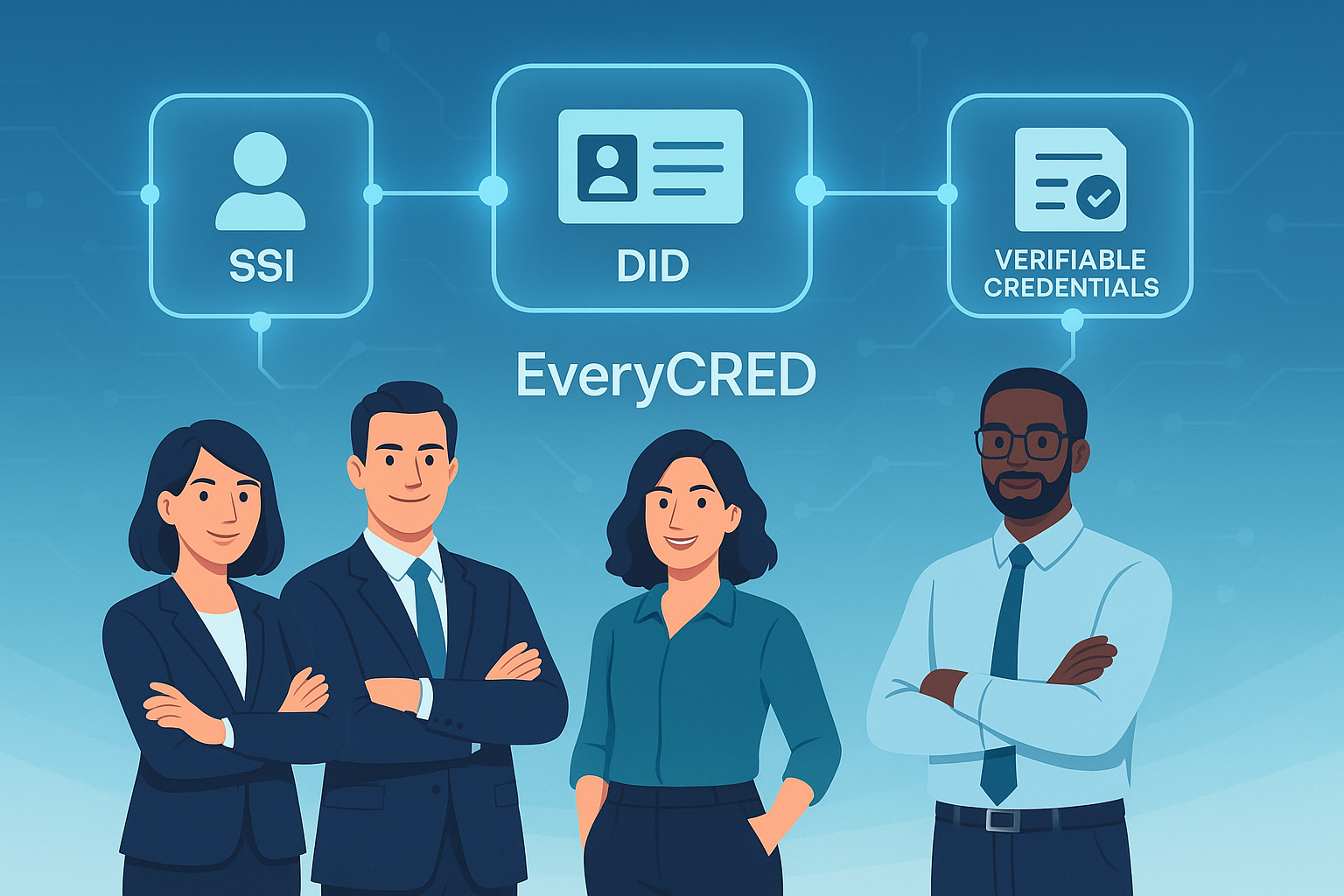
04 Sep, 2025
Blog Content Type Decentralized Identity Digital Credential Solutions Digital Identity Verification Industry Public Sector SSI Topic
For SMEs today, digital trust isn’t optional. Customers, regulators, and partners expect businesses to prove identity, manage data responsibly, and stay compliant. That’s where concepts like Self-Sovereign Identity (SSI) and Decentralized Identity (DID) come in. These sound technical, but in simple terms, they’re new ways to give businesses and people control over their digital identity, […]
Read post

 6 min read
6 min read

 6 min read
6 min read 
02 Sep, 2025
Blog Digital Credential Solutions Education Verifiable Credentials
If you are looking for a digital credentialing system (DCS), the choices can feel overwhelming. Universities, EdTech platforms, and training companies often hear the same names again and again: Accredible, Credly, and now EveryCRED. Each promises secure certificates and badges, but choosing the right platform is not simple. At this stage, most decision-makers ask one […]
Read post

 6 min read
6 min read

 6 min read
6 min read 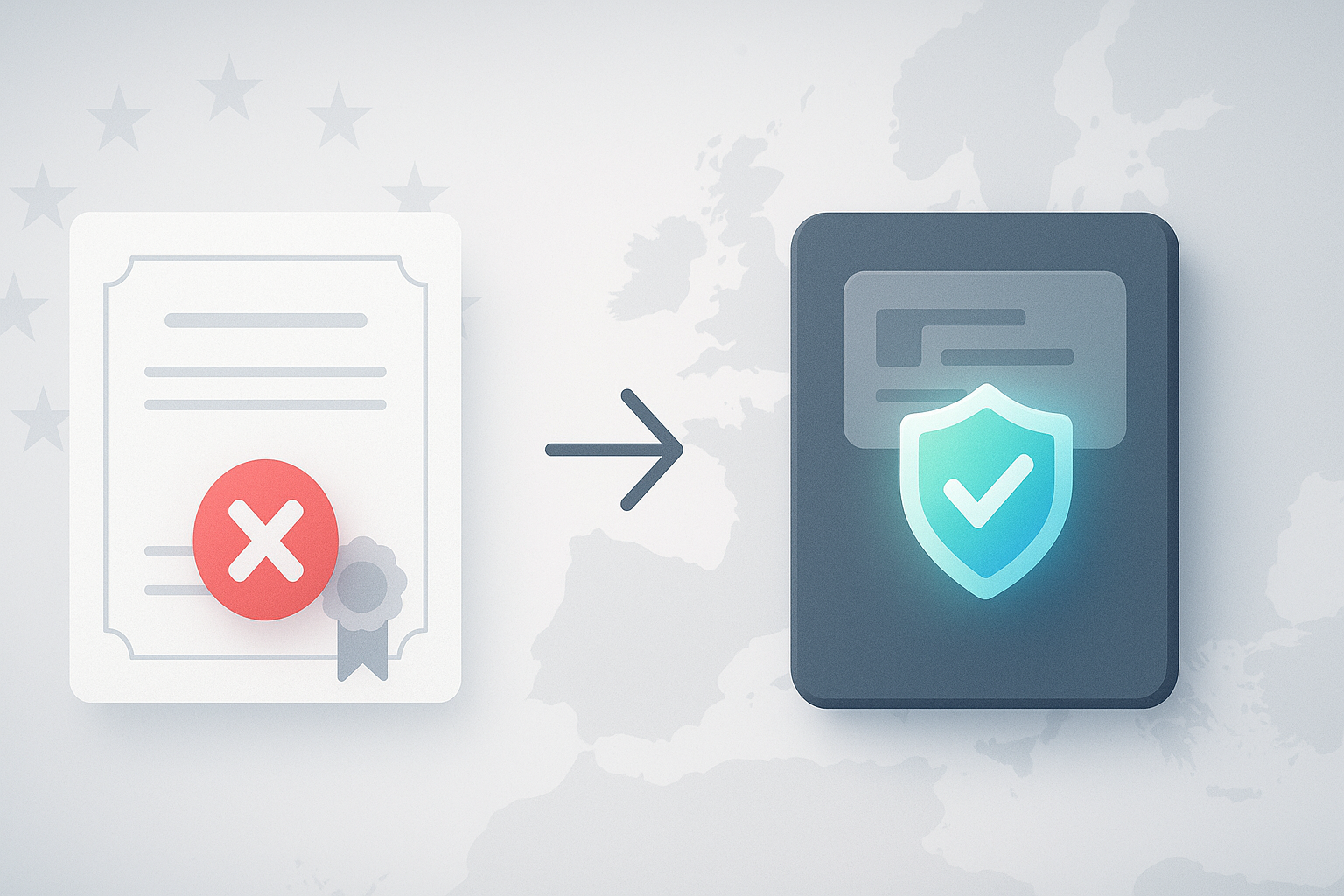
27 Aug, 2025
Blog Digital Credential Solutions Education
In July 2025, the European Patent Office (EPO) faced an unexpected credibility crisis. Results of the European Qualifying Examination (EQE) 2025, an exam taken by over 2,000 candidates across 65 nationalities contained clerical errors in the official results letters. Though corrected within 24 hours, the incident highlighted a deeper issue: even Europe’s most respected institutions […]
Read post

 6 min read
6 min read

 6 min read
6 min read 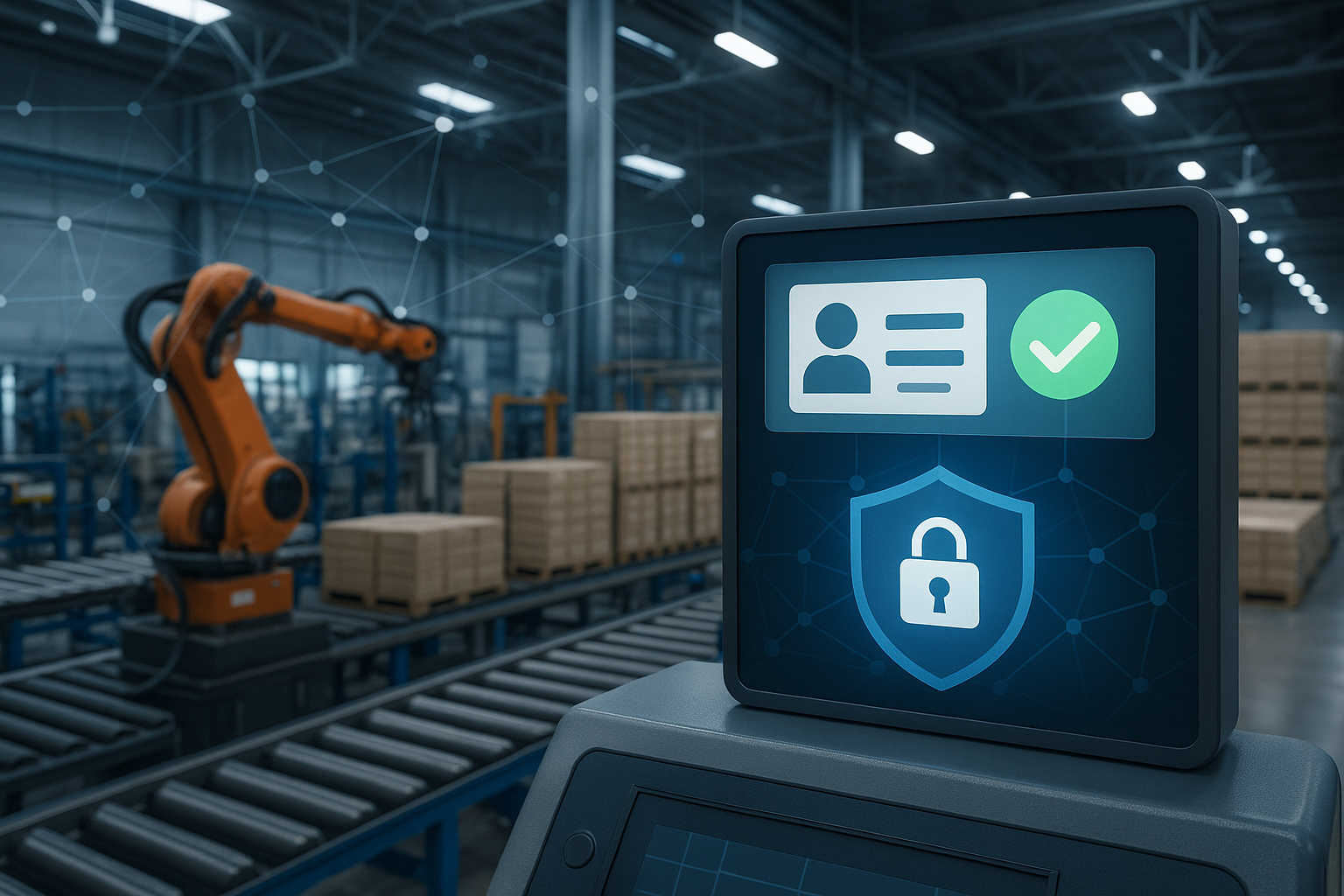
25 Aug, 2025
Blog Digital Credential Solutions Supply Chain Verifiable Credentials
Verifiable Credentials in Manufacturing are transforming how enterprises safeguard their supply chains against growing risks. Manufacturing enterprises in the US operate within complex global supply chains where trust and security are constantly under threat. According to recent Gartner and industry data, nearly two-thirds (61%) of U.S. businesses were directly impacted by software supply chain attacks […]
Read post

 9 min read
9 min read

 9 min read
9 min read 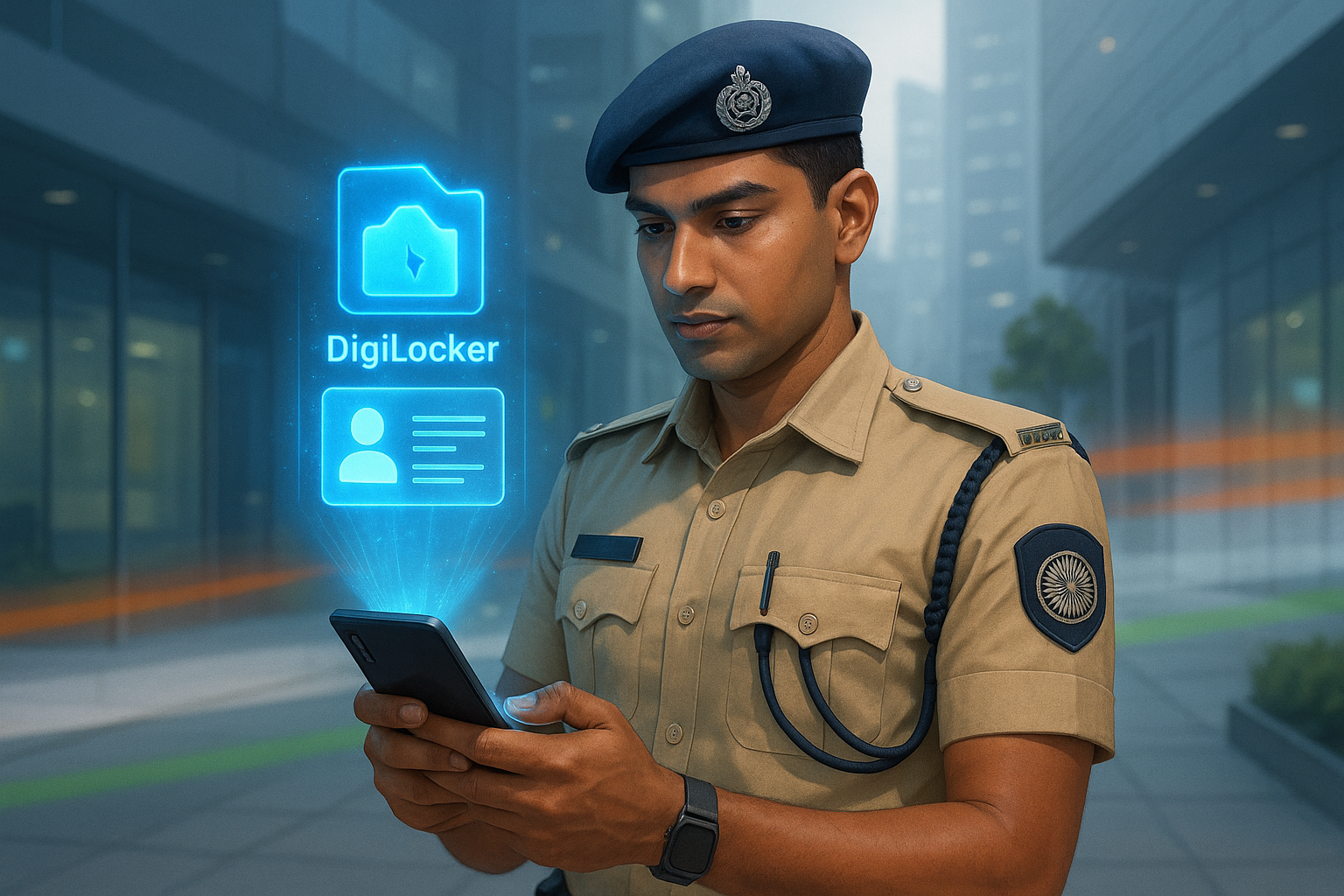
21 Aug, 2025
Case Study Digital Credential Solutions Digital Identity Verification Law Enforcement Verifiable Credentials
Project Overview On August 15, 2025 — India’s Independence Day, Raigad Police made history by becoming the first police department in India to fully digitize officer identification. In partnership with EveryCRED, they launched a DigiLocker-integrated police ID system that eliminates plastic cards, prevents identity fraud, and restores public trust in law enforcement. This transformation wasn’t […]
Read post

 3 min read
3 min read

 3 min read
3 min read 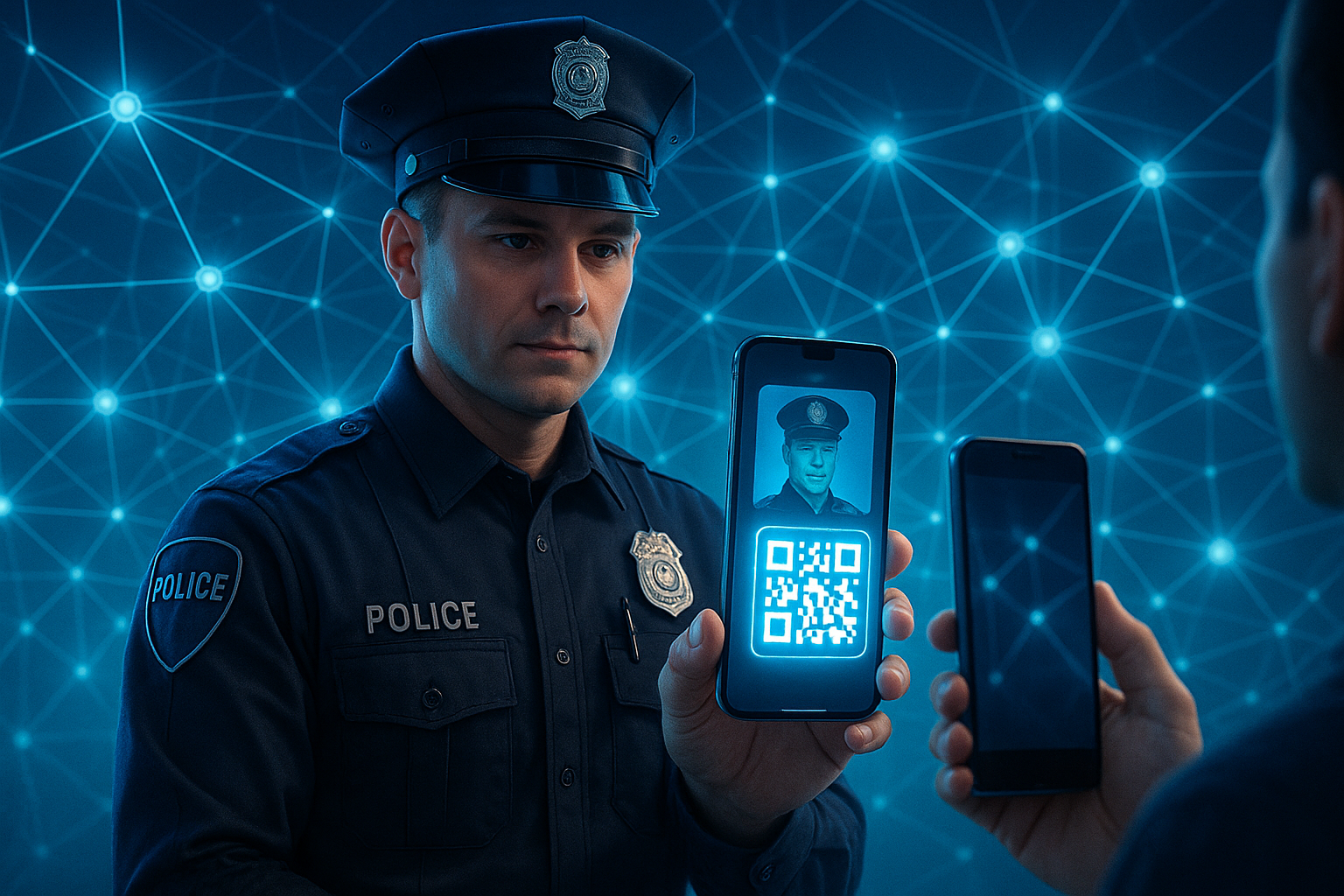
19 Aug, 2025
Blog Digital Identity Verification Industry Law Enforcement
Digital identity verification changes how police prove they are real. Instead of plastic ID cards that criminals can copy, officers now use secure digital credentials. These credentials run on blockchain and connect with government databases. That makes them impossible to fake or alter. Think of old police IDs like cash. Easy to copy, easy to […]
Read post

 7 min read
7 min read

 7 min read
7 min read 
13 Aug, 2025
Blog Decentralized Identity Education
We are living in a time where sophisticated software can make the line between original and fake very thin. So, digital trust is the backbone of credible identity, compliance, and workforce integrity in HR Tech and Training Tech. Yet, it’s eroding where it matters most: at scale, across borders, and in real-time onboarding and learning […]
Read post

 8 min read
8 min read

 8 min read
8 min read 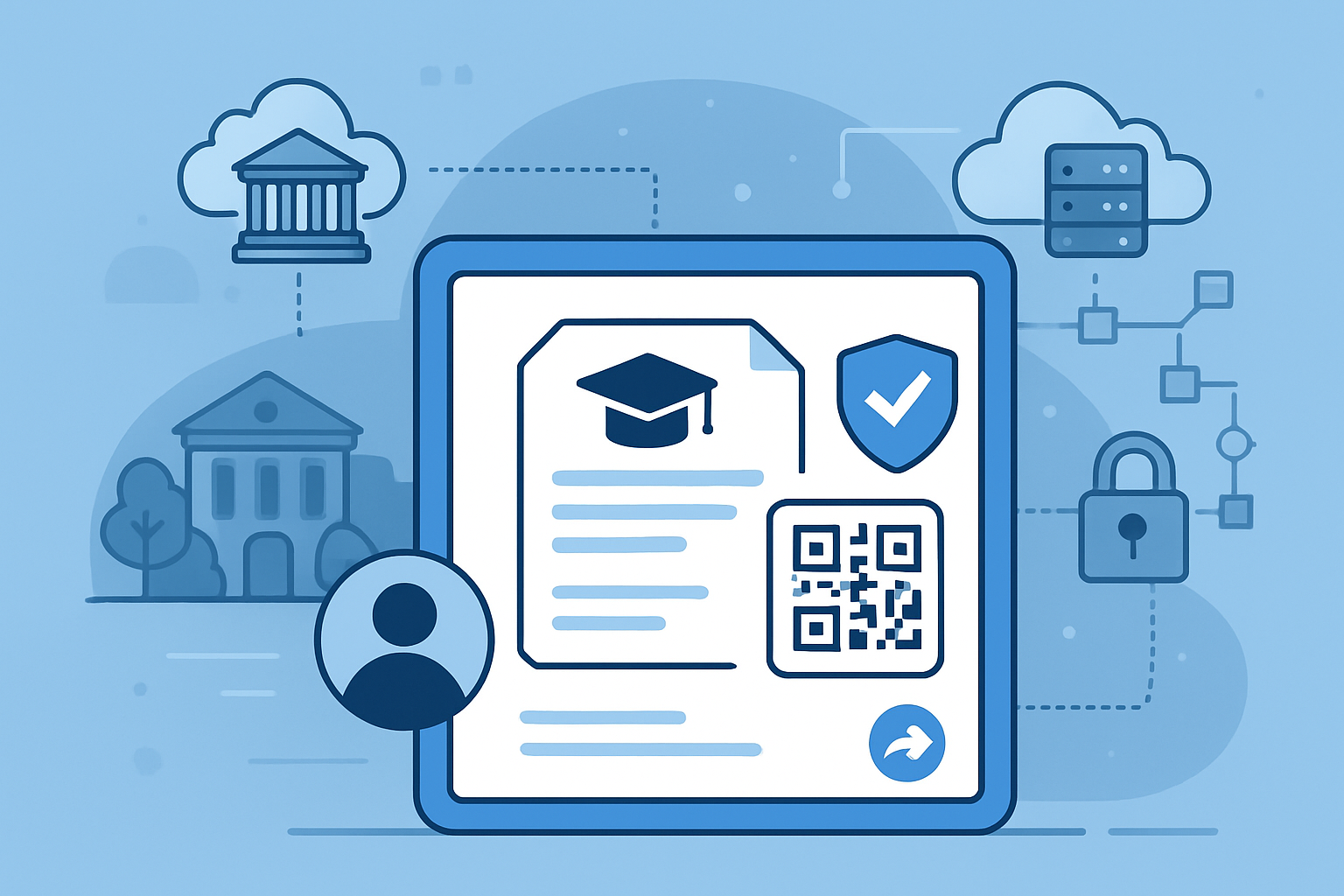
07 Aug, 2025
Blog Decentralized Identity Digital Credential Solutions Education Verifiable Credentials
In today’s digital-first world, academic credential verification is still painfully outdated. Universities, employers, and EdTech platforms often rely on slow, manual processes to confirm a candidate’s educational background leading to delays, increased administrative burden, and exposure to academic fraud. Overall blockchain in EdTech is predicted to be worth around $30.3 billion by 2034 up from […]
Read post

 6 min read
6 min read

 6 min read
6 min read 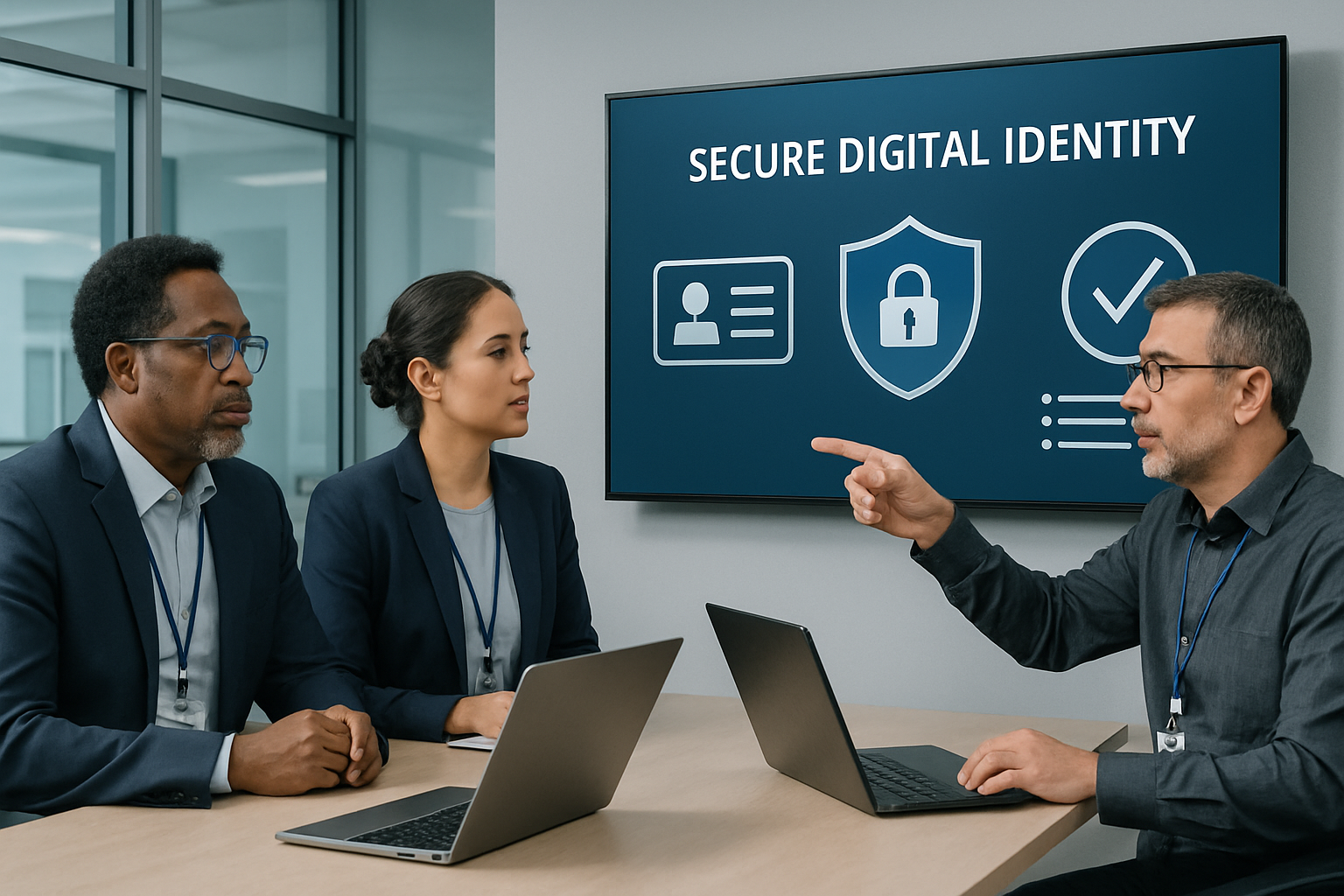
06 Aug, 2025
Blog Decentralized Identity Public Sector Verifiable Credentials
Hey CIOs, IT Heads, and Public Sector Leaders—if you’re thinking about digital identity solutions, this one’s for you. Let’s be honest: in 2025, identity is everything. And yet, most organizations are still relying on outdated, patchwork identity systems—centralized databases, password-based access, clunky onboarding tools—that just aren’t built for today’s digital velocity. Here’s a stat that’ll […]
Read post

 12 min read
12 min read

 12 min read
12 min read 
31 Jul, 2025
Professional license verification is becoming a mission-critical function as regulatory oversight tightens across industries. According to Coherent Market Insights, the global identity verification market is projected to reach $14–14.82 billion in 2025, with a CAGR of 13–17%, expected to surpass $35 billion by 2032. But as teams grow and compliance requirements become stricter, many organizations […]
Read post

 4 min read
4 min read

 4 min read
4 min read 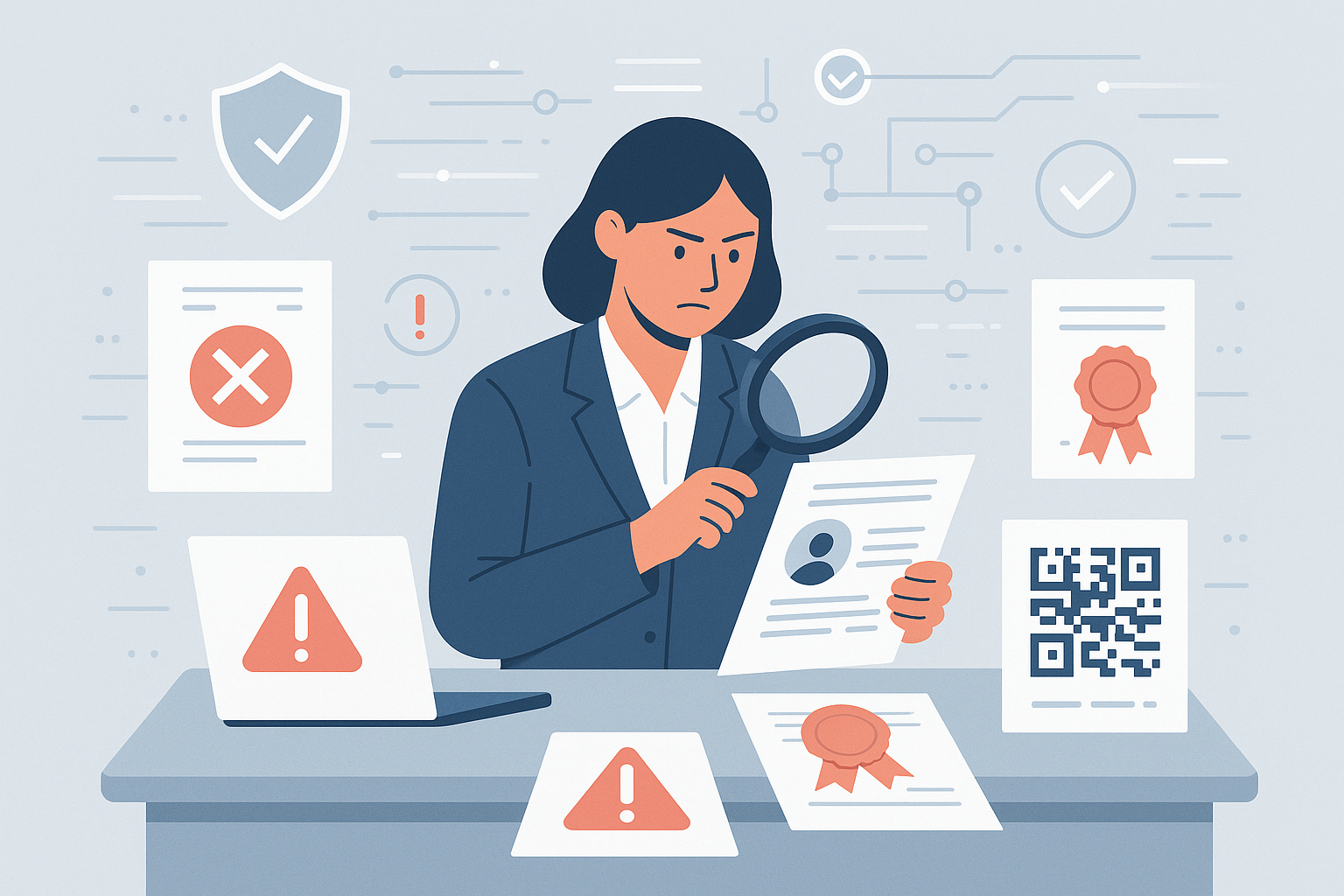
29 Jul, 2025
Blog Education Verifiable Credentials
Fake credentials detection is more important than ever—these are more common than you think, and spotting them early is crucial for protecting your company from bad hires, legal trouble, and reputational damage. Here’s a quick checklist to help you detect suspicious qualifications: Why it matters: Credential fraud is one of the fastest-growing threats in hiring. […]
Read post

 10 min read
10 min read

 10 min read
10 min read 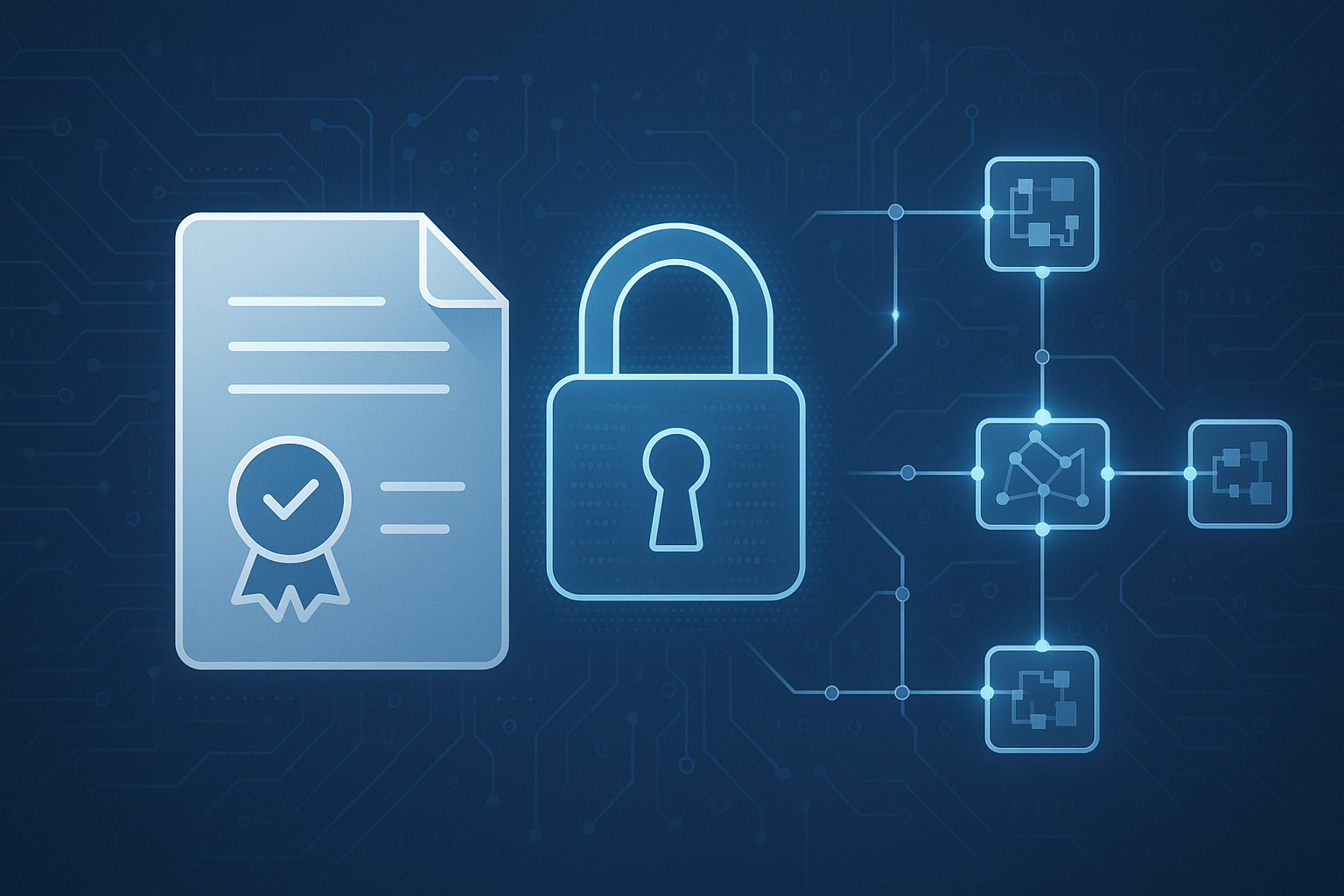
23 Jul, 2025
Certificate fraud prevention has become a top priority for institutions across education, government, and HR, as trust in traditional credentials continues to erode. From fake diplomas bought online to unverifiable professional licenses, the spread of fraudulent credentials threatens more than just paperwork, it undermines institutional reputation, erodes public trust, and exposes organizations to serious compliance […]
Read post

 10 min read
10 min read

 10 min read
10 min read 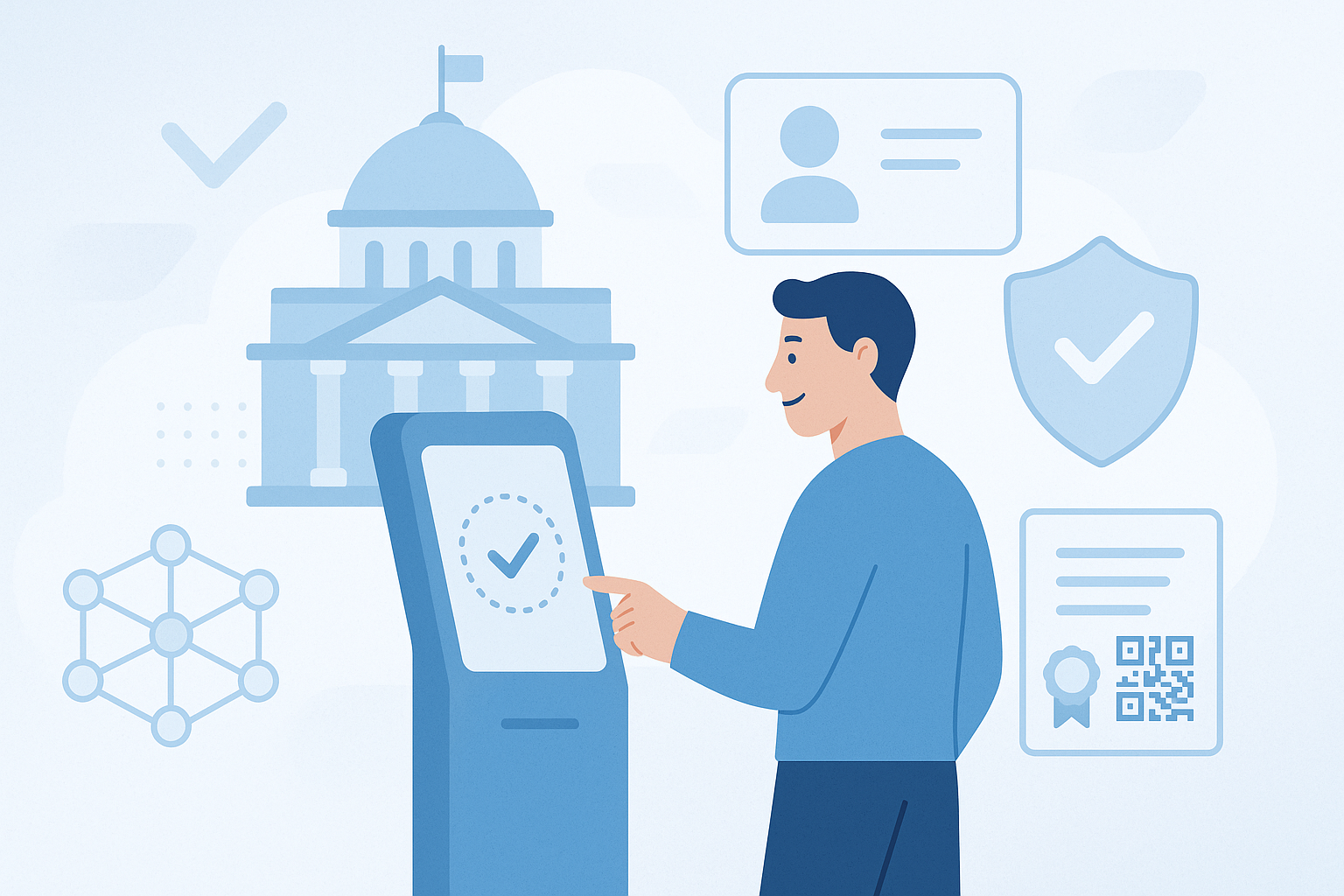
17 Jul, 2025
Trust in public services is wearing thin and the reasons are not surprising. Long queues, repeated paperwork, missing documents, and opaque verification processes have eroded citizen confidence in how public institutions function. In a world where people can access banking, healthcare, and communication at the tap of a screen, interacting with public services often still […]
Read post

 12 min read
12 min read

 12 min read
12 min read 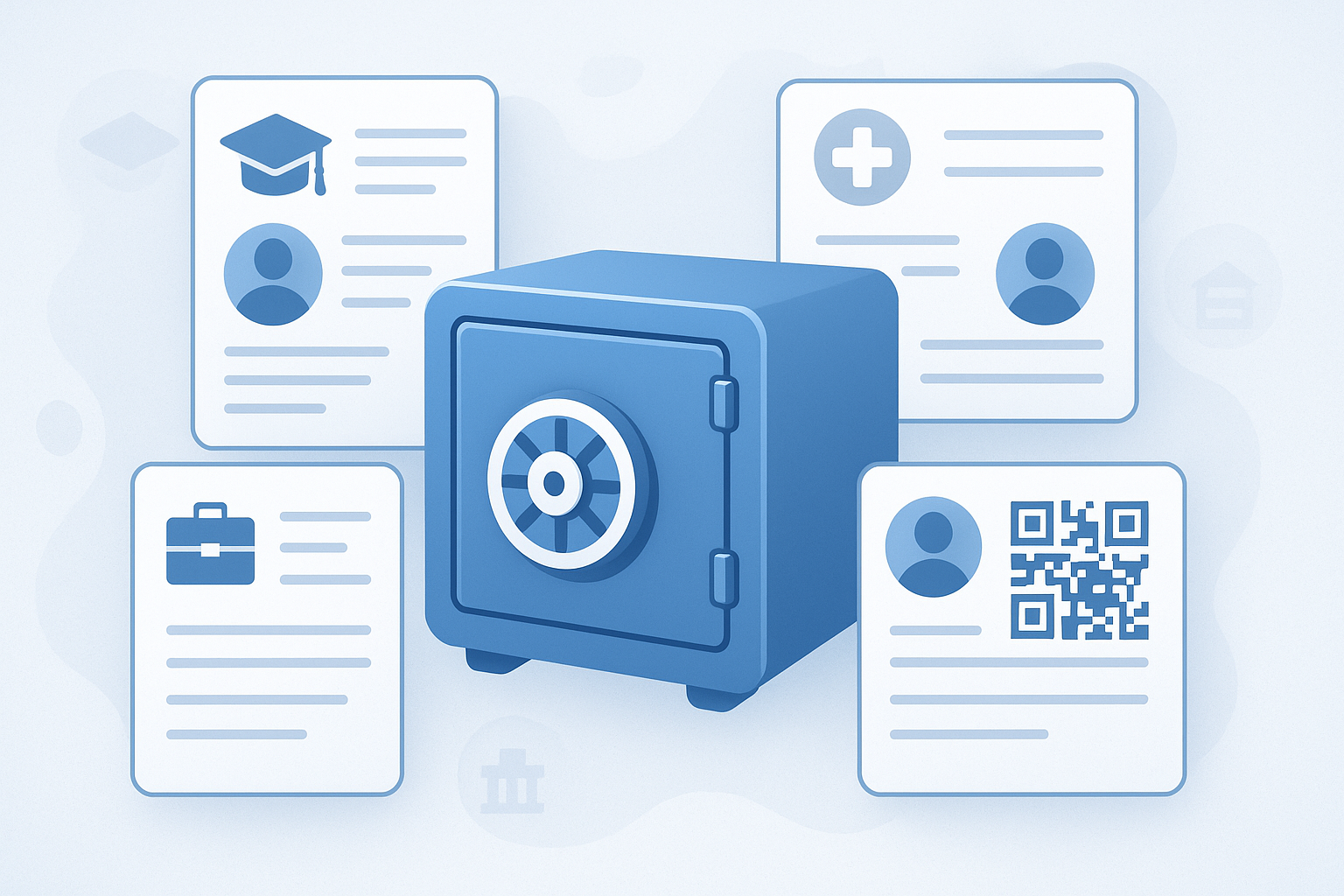
15 Jul, 2025
Verifiable credentials are changing how identity, credentials, and trust are managed worldwide. As digital transformation speeds up, the need for secure, user-controlled, and instantly verifiable credentials is growing rapidly. According to Grand View Research, the global identity verification market is projected to reach $33.93 billion by 2030, growing at a CAGR of 16.7%. The digital […]
Read post

 6 min read
6 min read

 6 min read
6 min read 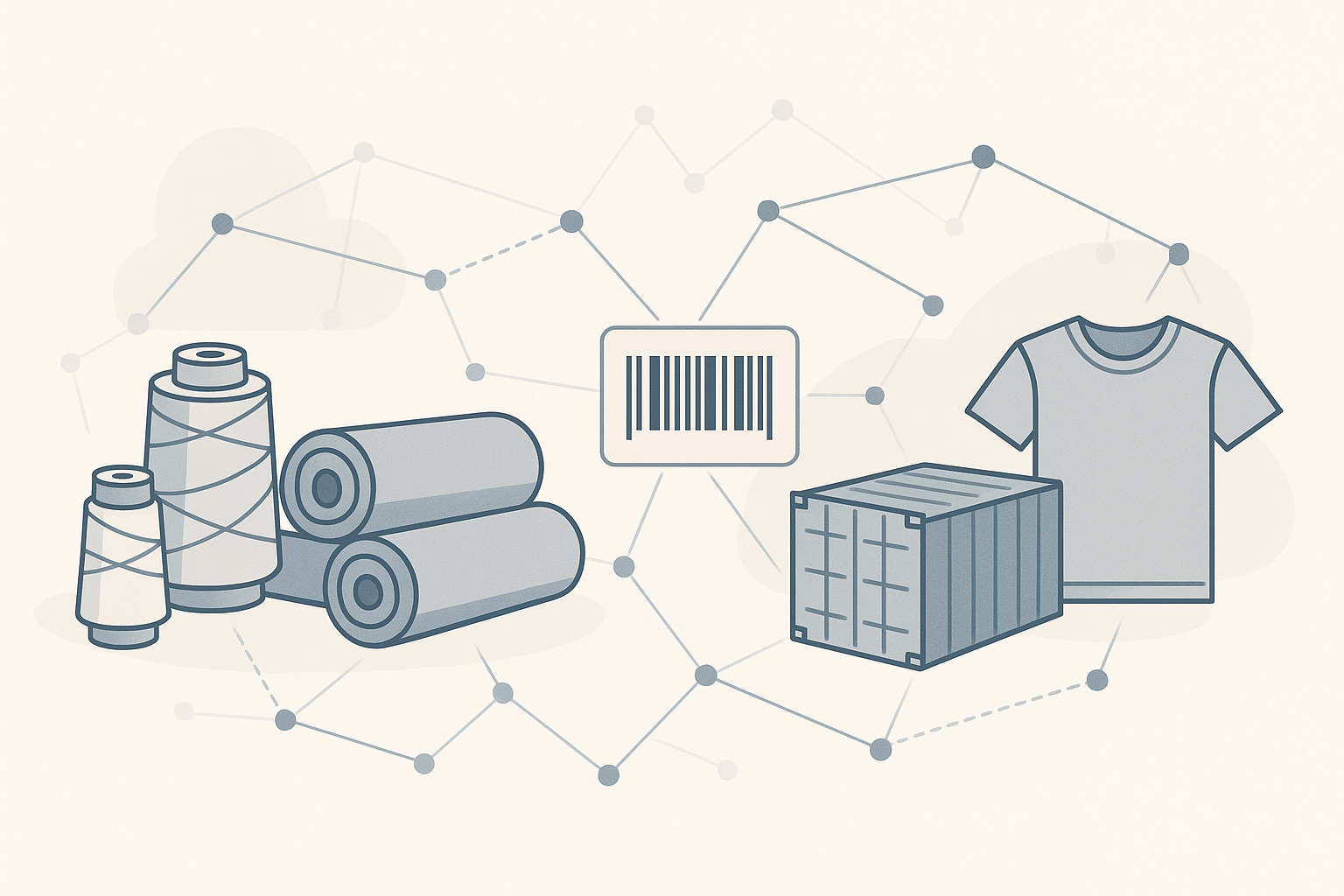
11 Jul, 2025
Blog Digital Credential Solutions Supply Chain Verifiable Credentials
Textile supply chain traceability is becoming essential in the industry today. Customers want to know where products come from, governments are bringing in new rules, and brands need better ways to manage their operations. Tracking your product’s journey from raw material to finished garment helps you build trust, follow the rules, and stay ahead in […]
Read post

 11 min read
11 min read

 11 min read
11 min read 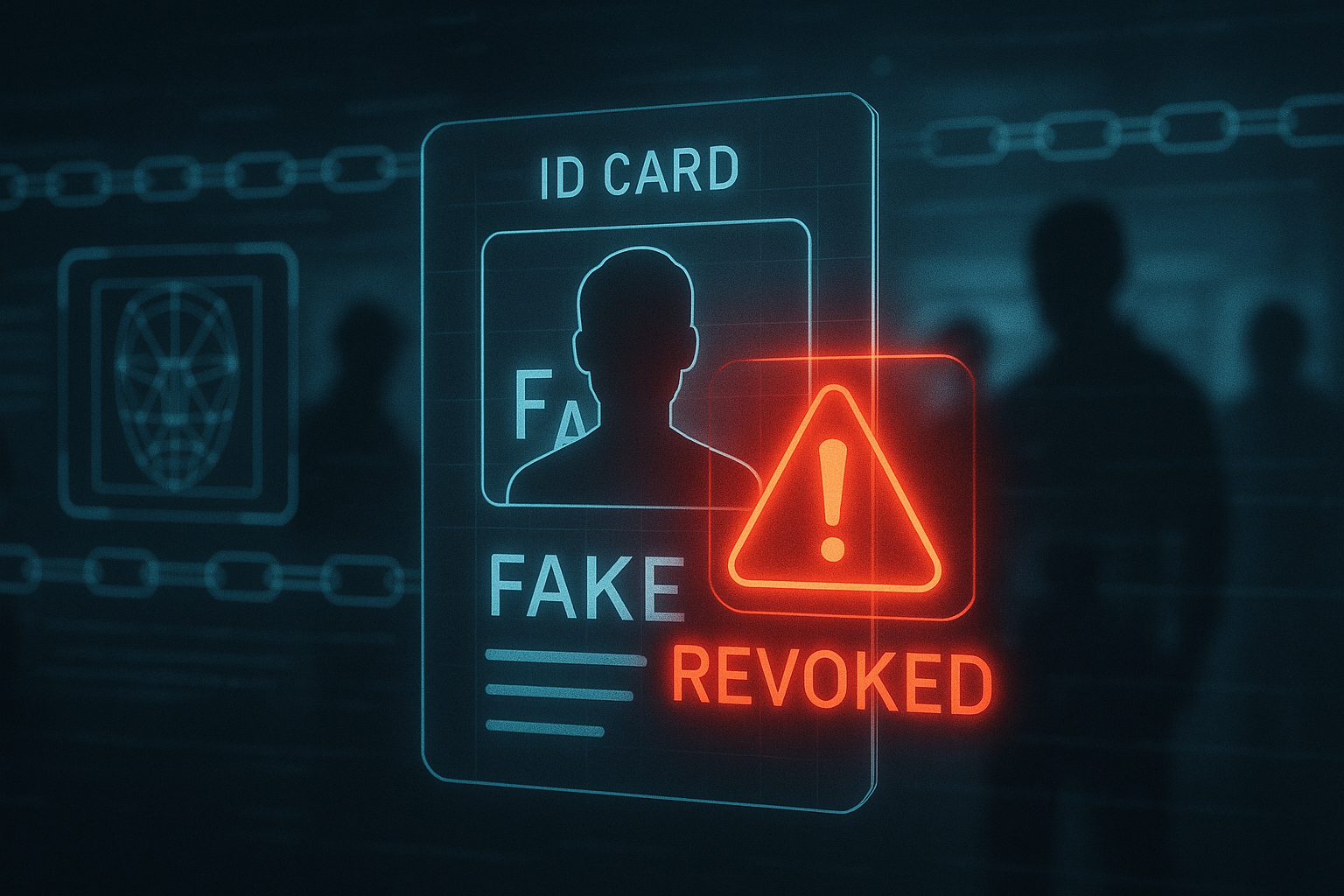
08 Jul, 2025
Blog Cybersecurity Verifiable Credentials
The fraudsters claimed she was under a “digital arrest.” In June 2025, a woman in India lost over ₹3 crore to a scam that started with a single phone call. They used fake credentials, fear tactics, and official-sounding language to steal her money in real time. This isn’t a one-off case. Across India, digital arrest […]
Read post

 7 min read
7 min read

 7 min read
7 min read 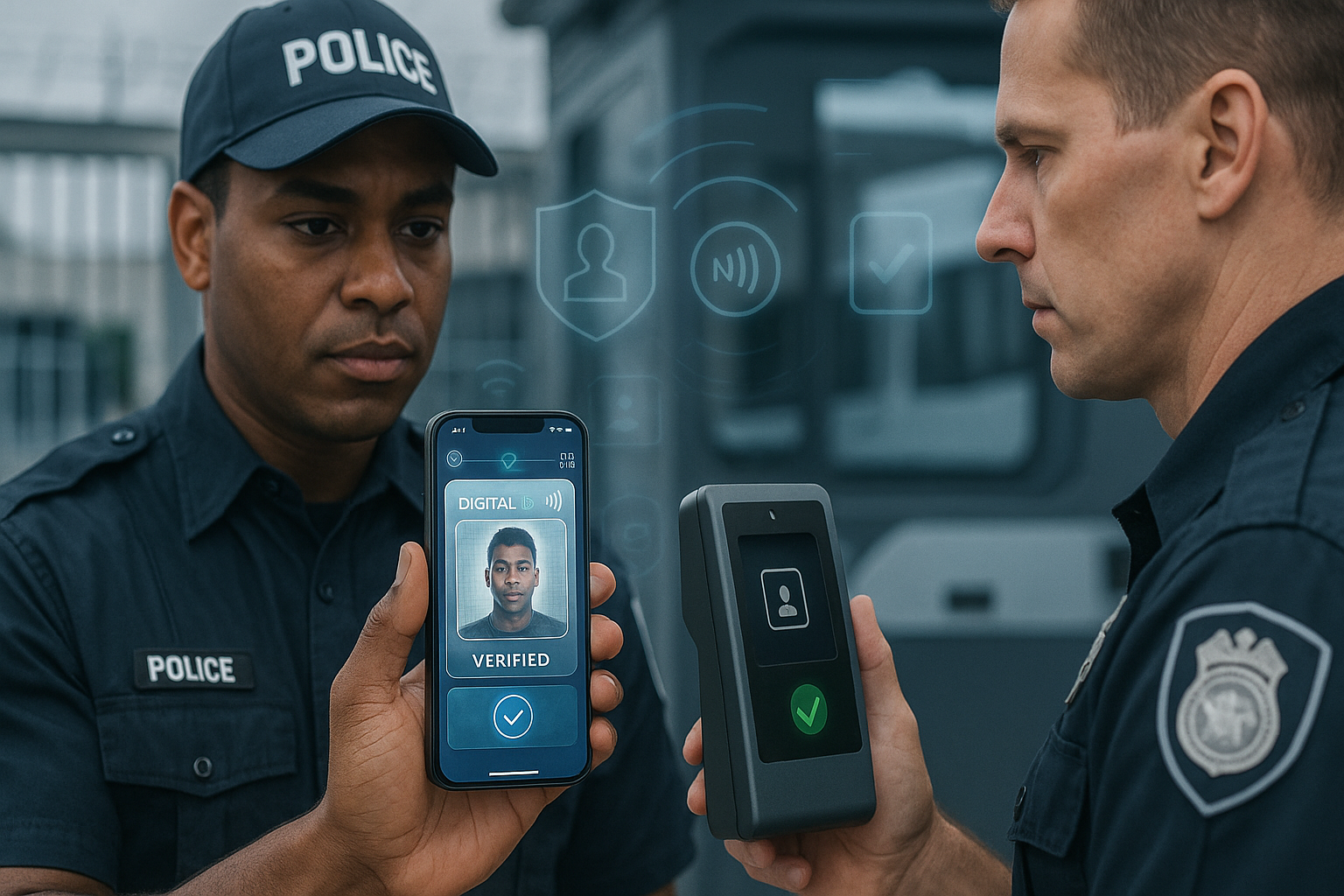
03 Jul, 2025
In 2024 alone, multiple law enforcement agencies across the globe faced serious digital identity proofing failures incidents where unauthorized individuals gained access to restricted police systems using outdated or misused credentials. These breaches weren’t the result of high-level cyberattacks; they happened because the system still relied on plastic ID cards, usernames, and human trust. For […]
Read post

 8 min read
8 min read

 8 min read
8 min read 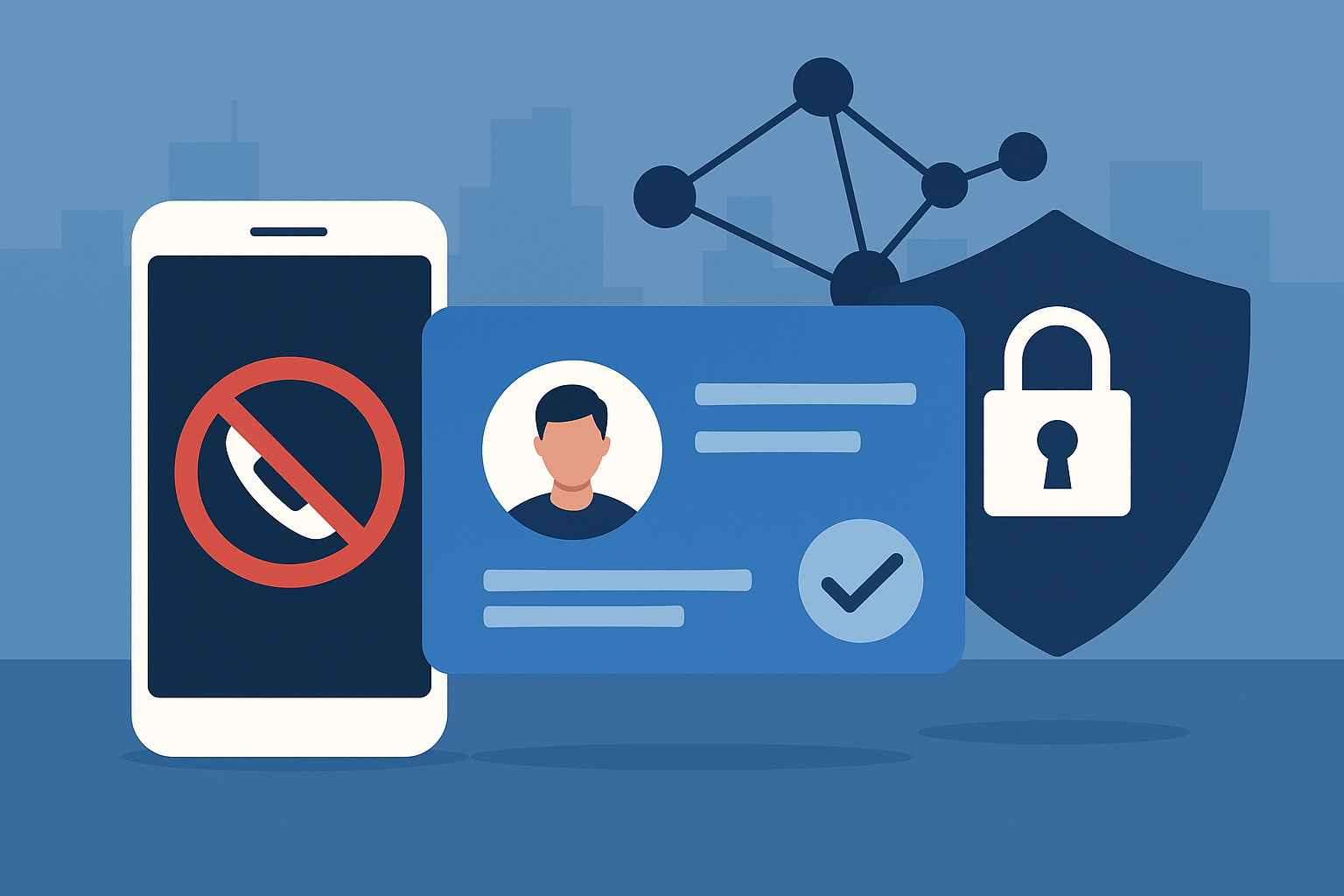
01 Jul, 2025
Blog Public Sector Verifiable Credentials
Privacy-first credentialing is transforming how institutions manage identity and trust. As governments and education institutions modernize identity systems, digital credentialing is rapidly replacing paper-based methods. From mobile diplomas to digital ID cards, these credentials are becoming essential tools for access, verification, and compliance. Privacy-first credentialing is a critical trend, with decentralized architectures rapidly gaining traction […]
Read post

 12 min read
12 min read

 12 min read
12 min read 
30 Jun, 2025
Blog Digital Credential Solutions Education
Micro-credentials are short, focused learning programs that help people build specific skills. They act like mini-certificates and often take less time to complete than a degree or diploma. Think of them as quick ways to prove what you know and what you can do. Micro-credentials are reshaping how people learn and prove their skills. As […]
Read post

 6 min read
6 min read

 6 min read
6 min read 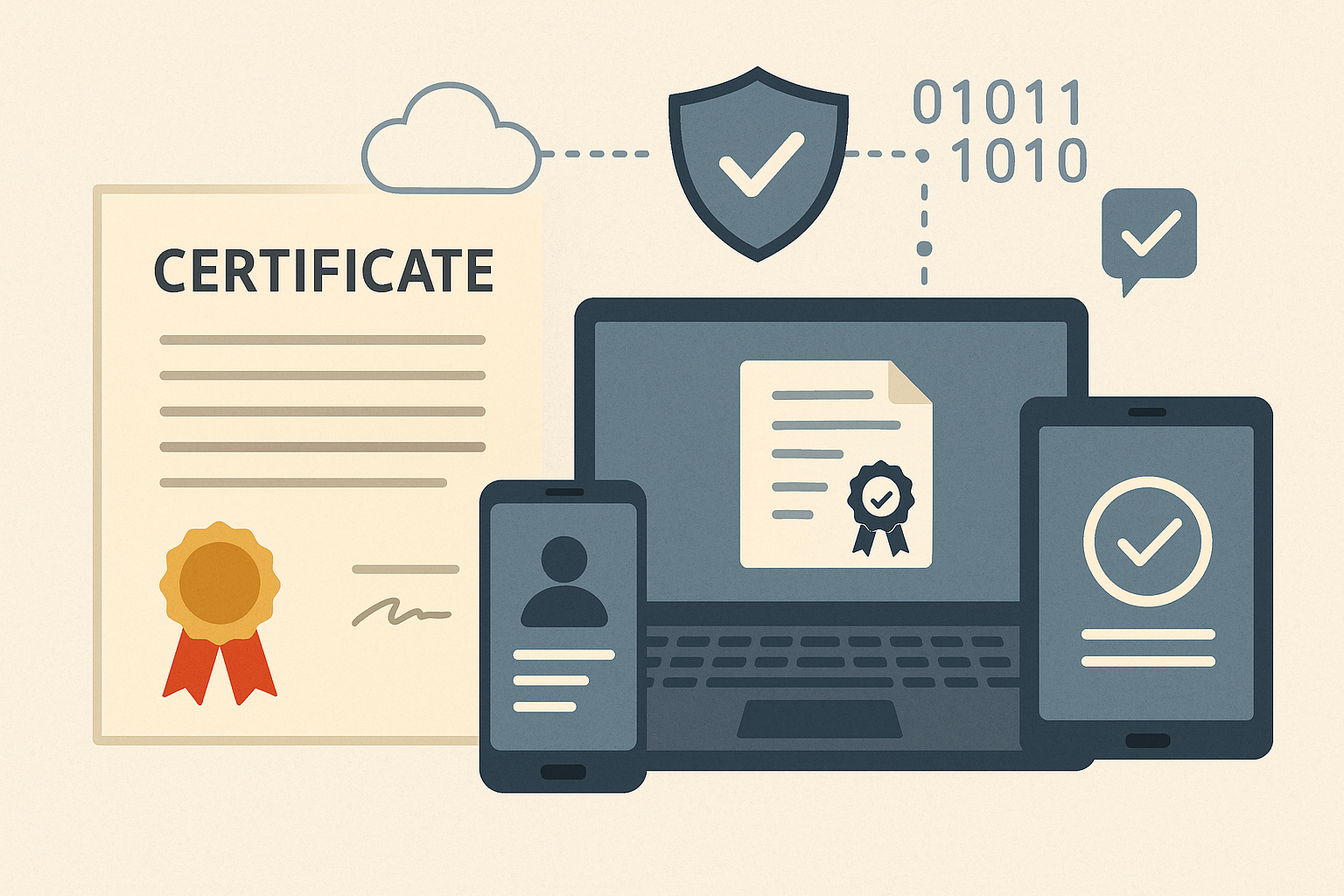
23 Jun, 2025
Blog Digital Credential Solutions Education
Digital credentials are becoming a key concern for anyone responsible for student records, certifications, or IT systems.
Read post

 11 min read
11 min read

 11 min read
11 min read 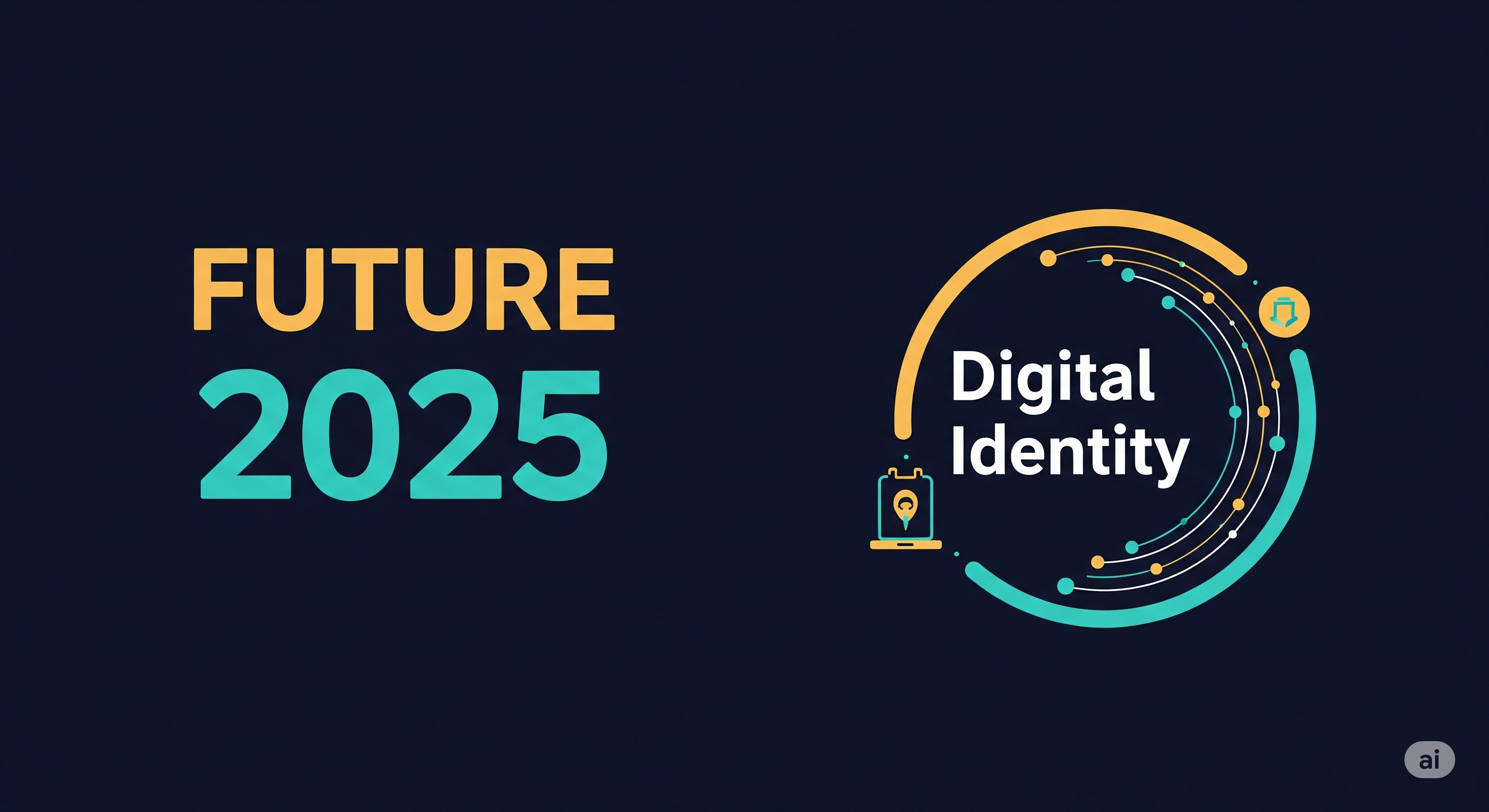
10 Jun, 2025
Blog Decentralized Credentials Digital Credential Solutions Verifiable Credentials
Let me ask you something - how many apps and websites have your personal information right now? 50? 100? Try 300+. I'm not exaggerating.
Read post

 11 min read
11 min read

 11 min read
11 min read 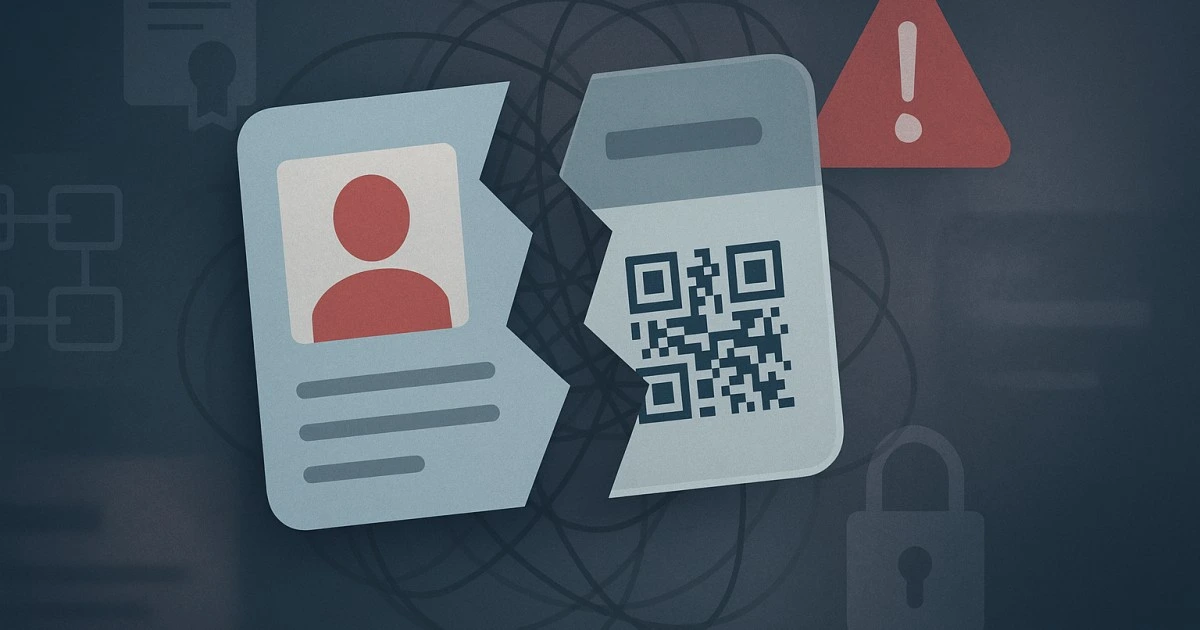
05 Jun, 2025
Blog Verifiable Credentials
Verifiable credentials are often touted as the future of digital identity, promising enhanced privacy, security, and user control.
Read post

 7 min read
7 min read

 7 min read
7 min read 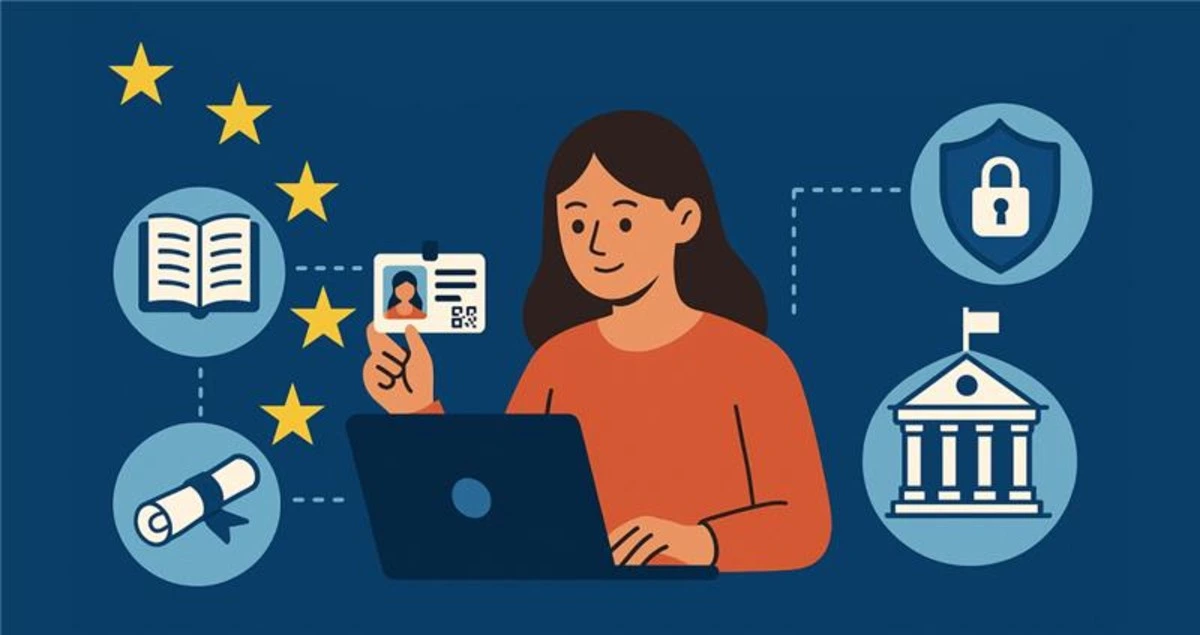
27 May, 2025
Blog SSI
Self-Sovereign Identity is emerging as a critical solution for Europe’s education sector, just as its traditional credentialing systems begin to show their age.
Read post

 11 min read
11 min read

 11 min read
11 min read 
23 May, 2025
Blog Education
European universities urgently need digital identity verification as they accelerate digital transformation, face rising fraud risks, and must comply with strict regulations.
Read post

 14 min read
14 min read

 14 min read
14 min read 
20 May, 2025
Blog Education
Digital badges are becoming an increasingly popular way for institutions like yours to recognize learning achievements in a flexible, modern format.
Read post

 8 min read
8 min read

 8 min read
8 min read 
16 May, 2025
Blog Education
Virtual learning is becoming the smarter approach today's changing workforce demands.
Read post

 8 min read
8 min read

 8 min read
8 min read 
14 May, 2025
Blog Education
Microcredentials are redefining how Europe approaches workforce education. As Europe’s workforce evolves, so too must its approach to education.
Read post

 8 min read
8 min read

 8 min read
8 min read 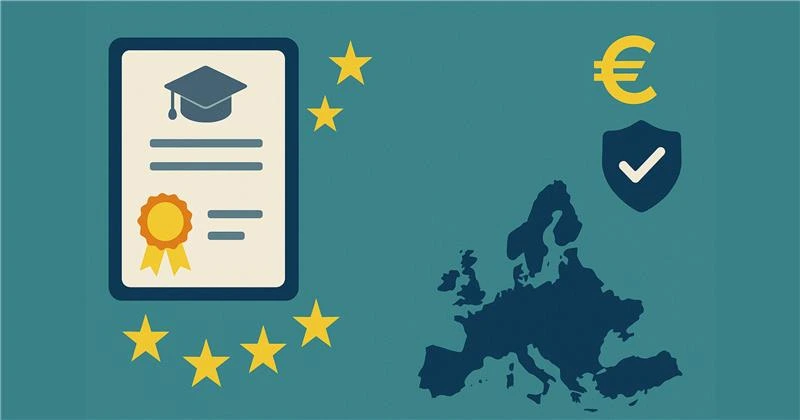
12 May, 2025
Blog
Europe is experiencing an unprecedented surge in online education adoption. From self-paced MOOCs to fully accredited digital universities.
Read post

 10 min read
10 min read

 10 min read
10 min read 
06 May, 2025
Blog Education
Digital credentials are transforming identity verification in European education. As learning increasingly moves online and becomes global, traditional paper-based certificates.
Read post

 12 min read
12 min read

 12 min read
12 min read 
02 May, 2025
Blog Education
Identity verification in European education is becoming a critical challenge as virtual learning and borderless education surge.
Read post

 8 min read
8 min read

 8 min read
8 min read 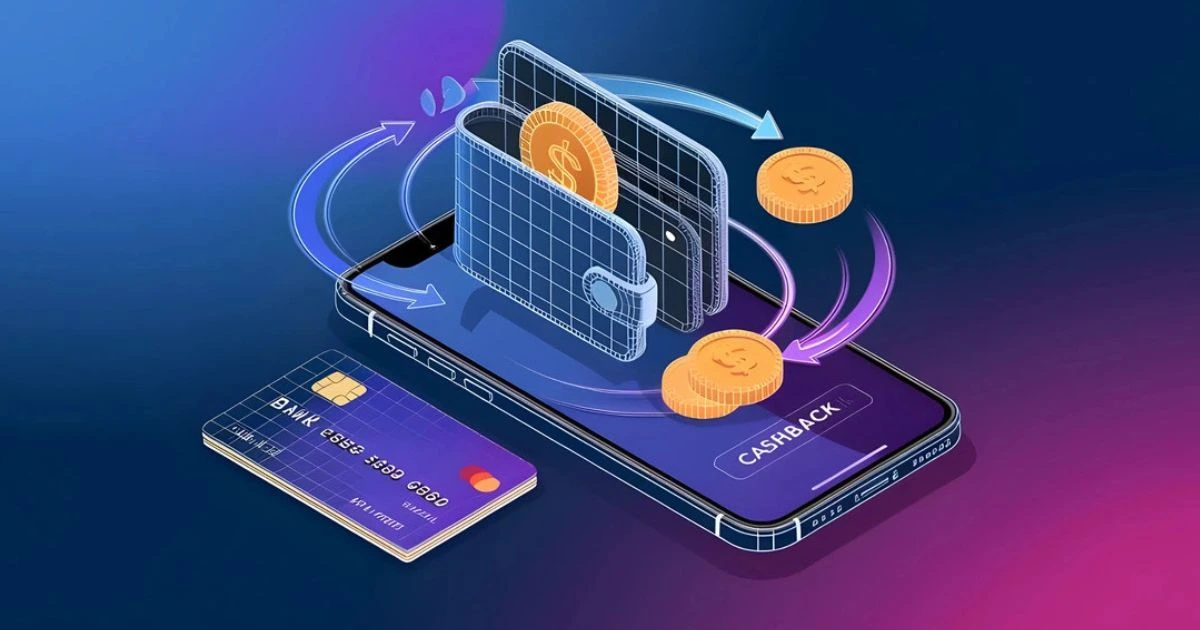
29 Apr, 2025
Blog Education
The European digital wallet is redefining how we manage and verify education credentials — replacing paper-based diplomas, physical transcripts, and clunky email chains.
Read post

 8 min read
8 min read

 8 min read
8 min read 
28 Apr, 2025
Blog Verifiable Credentials
European diploma verification has become a pivotal process in ensuring the legitimacy of academic qualifications in today’s fast-evolving global workforce.
Read post

 16 min read
16 min read

 16 min read
16 min read 
22 Apr, 2025
Blog Digital Credential Solutions
Organizations are under growing pressure to scale certification programs efficiently as professional training expands across global markets.
Read post

 12 min read
12 min read

 12 min read
12 min read 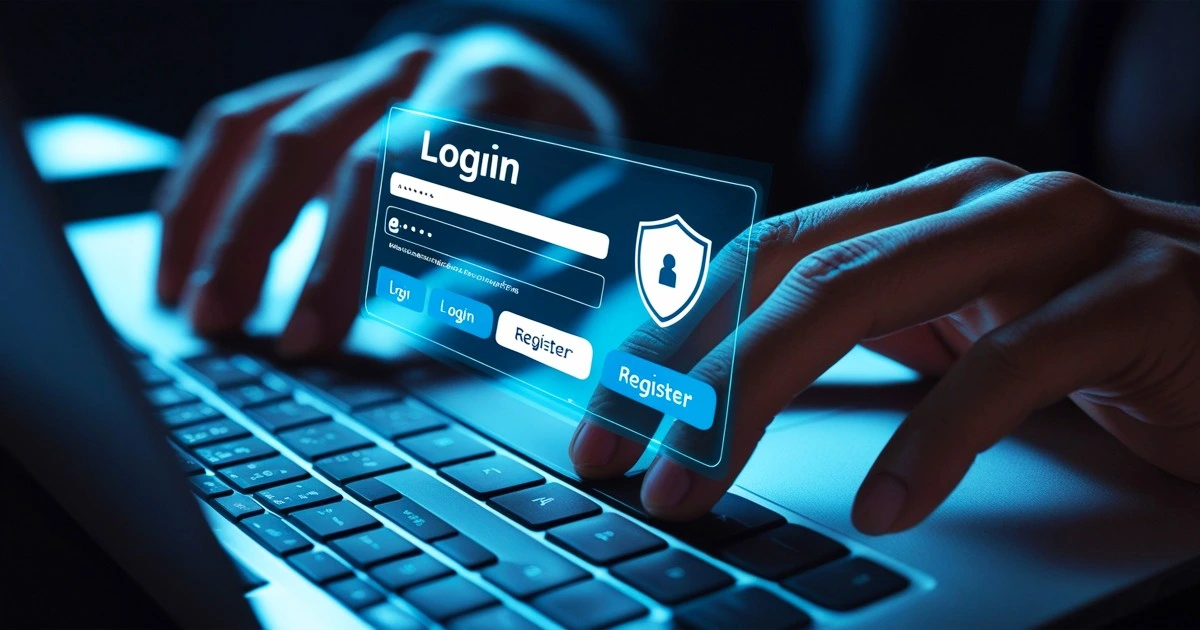
18 Apr, 2025
Blog Verifiable Credentials
Across Europe, education systems are under growing pressure to modernize and digitize how they verify qualifications.
Read post

 9 min read
9 min read

 9 min read
9 min read 
15 Apr, 2025
Blog Verifiable Credentials
Micro-credentials are rapidly emerging as a key driver in Europe’s evolving online education landscape.
Read post

 9 min read
9 min read

 9 min read
9 min read 
11 Apr, 2025
Blog Education
No-code credentialing in higher education is at a critical juncture. Traditional methods of issuing and verifying academic credentials are increasingly seen.
Read post

 6 min read
6 min read

 6 min read
6 min read 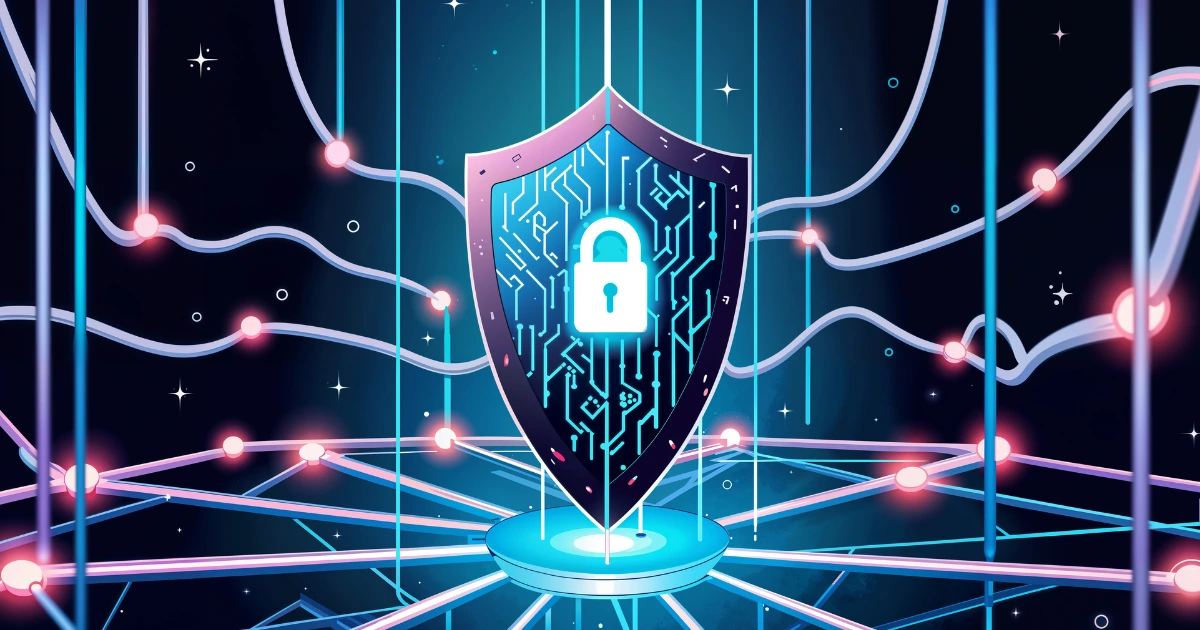
08 Apr, 2025
Blog Education
Blockchain credentials offer a powerful solution. Credential fraud is a growing concern in higher education, with alarming statistics revealing its widespread impact.
Read post

 7 min read
7 min read

 7 min read
7 min read 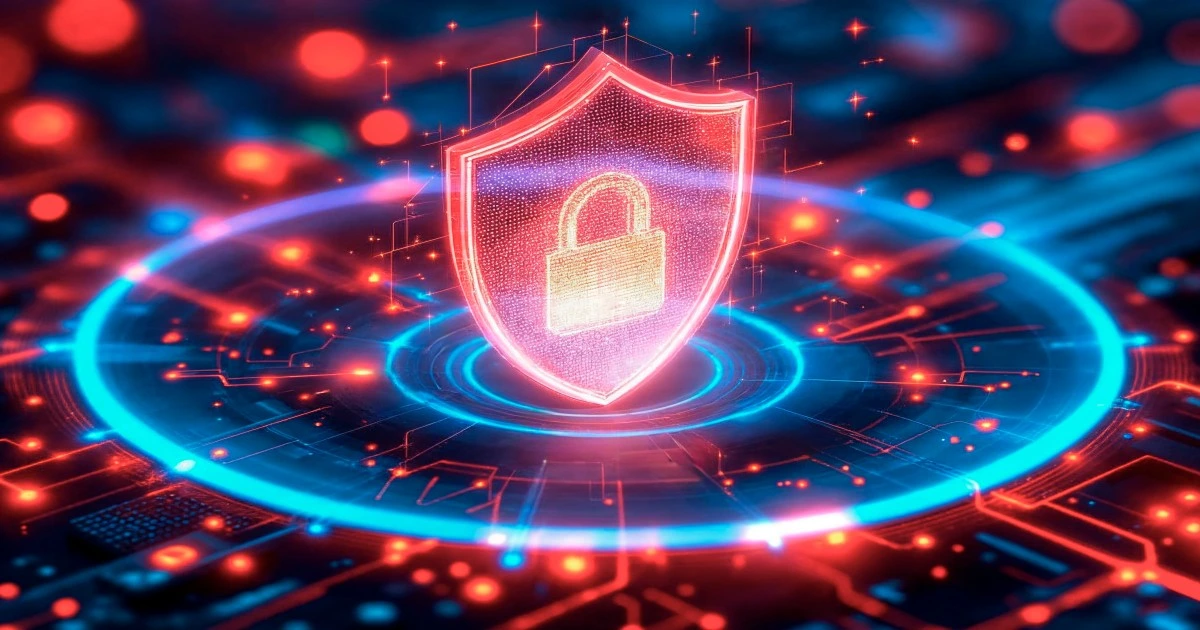
03 Apr, 2025
Blog Digital Credential Solutions
Digital credential certification fraud prevention has become a critical priority for organizations worldwide as credential fraud costs businesses billions annually.
Read post

 7 min read
7 min read

 7 min read
7 min read 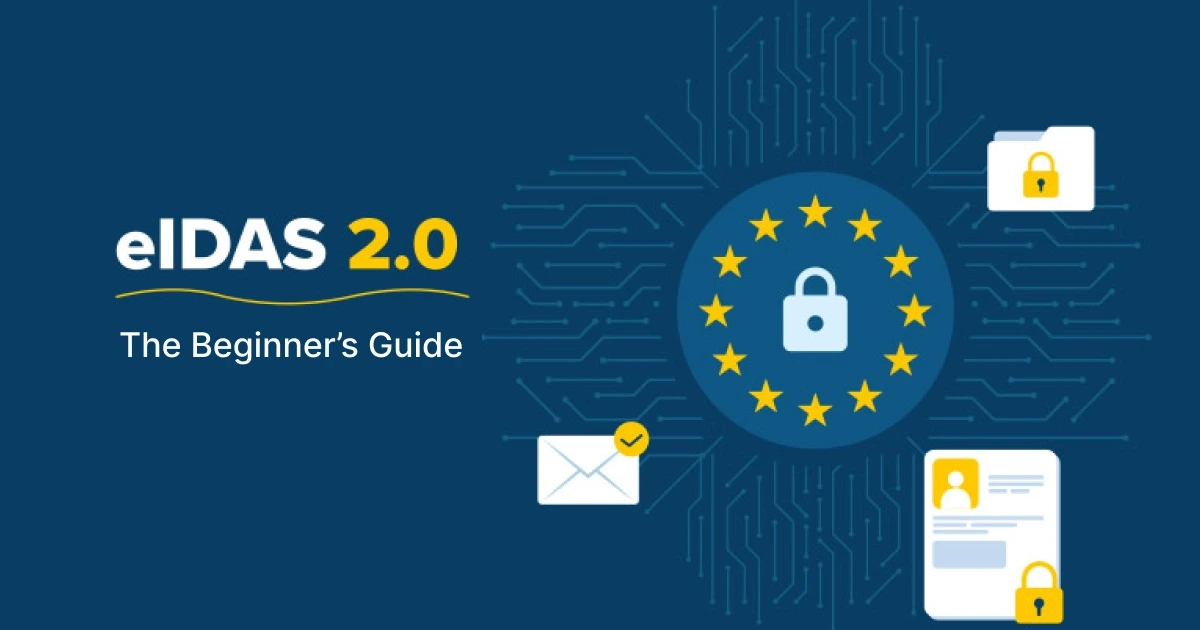
01 Apr, 2025
Blog Education
The European Union's eIDAS 2.0 regulation represents a transformative step in digital identity management.
Read post

 8 min read
8 min read

 8 min read
8 min read 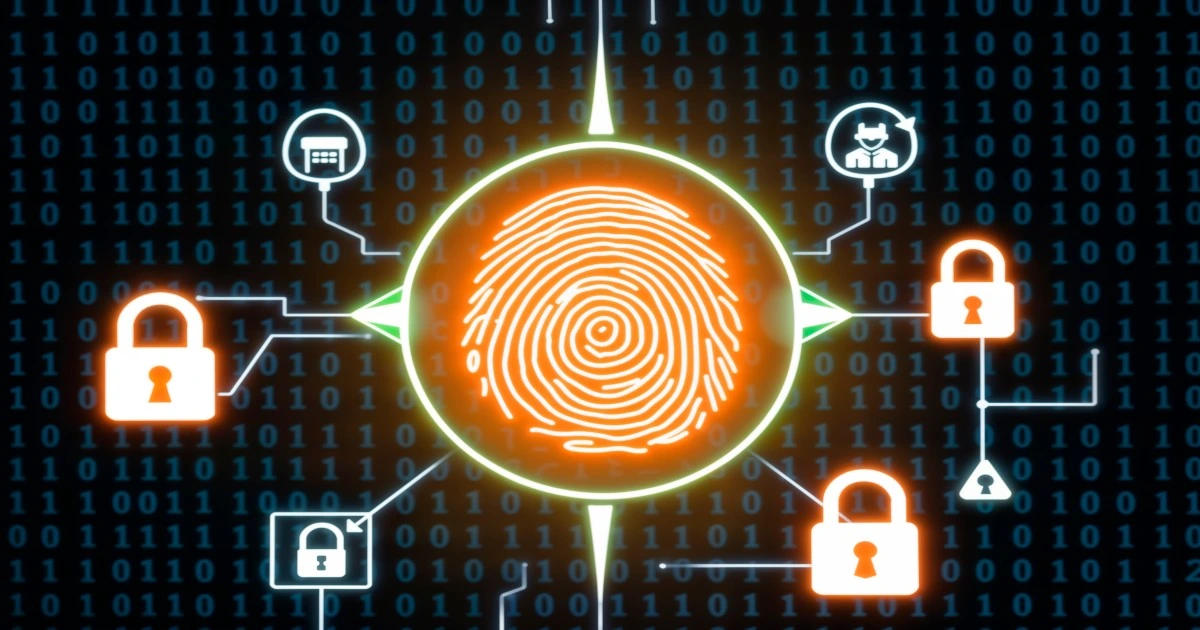
28 Mar, 2025
Blog Verifiable Credentials
Blockchain in identity verification is revolutionizing the way we establish trust in digital interactions.
Read post

 6 min read
6 min read

 6 min read
6 min read 
26 Mar, 2025
Blog Education
Education verification is a critical component of the hiring process, ensuring that candidates possess the qualifications they claim.
Read post

 7 min read
7 min read

 7 min read
7 min read 
24 Mar, 2025
Blog Public Sector
Digital identity verification is crucial as identity fraud is a growing global concern, with the Federal Trade Commission.
Read post

 9 min read
9 min read

 9 min read
9 min read 
21 Mar, 2025
Blog Digital Credential Solutions
Digital credentials are revolutionizing the professional certification industry, offering a shareable alternative to traditional certificates.
Read post

 6 min read
6 min read

 6 min read
6 min read 
18 Mar, 2025
Blog Digital Credential Solutions
Did you know that the global digital credential market is expected to reach $2.6 billion by 2026?
Read post

 5 min read
5 min read

 5 min read
5 min read 
13 Mar, 2025
Blog Digital Credential Solutions
Struggling to bridge the skills gap in today’s fast-evolving job market? Traditional degrees are expensive and time-consuming, while employers demand verified, job-ready skills.
Read post

 5 min read
5 min read

 5 min read
5 min read 
10 Mar, 2025
Blog Education
Digital certificates in education play a crucial role in verifying students' academic achievements and qualifications.
Read post

 9 min read
9 min read

 9 min read
9 min read 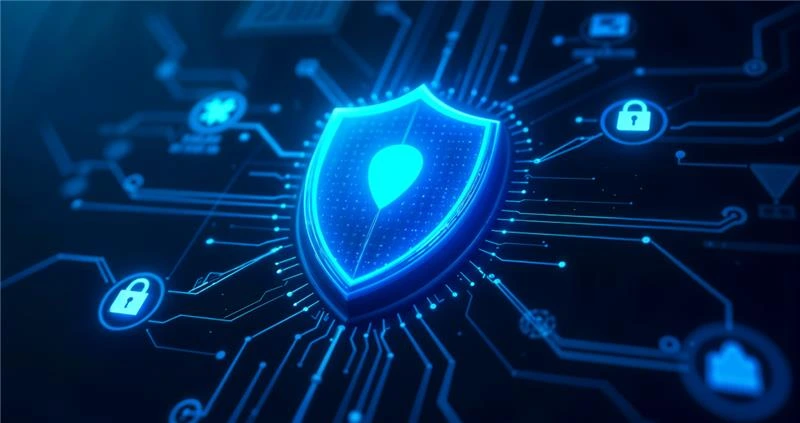
05 Mar, 2025
Blog Digital Credential Solutions
The way we issue and verify credentials is changing. Traditional paper certificates are being replaced by digital credentials platforms, which offer a secure, paperless, and efficient way to manage certifications.
Read post

 7 min read
7 min read

 7 min read
7 min read 
28 Feb, 2025
Blog Verifiable Credentials
Verifiable digital certificates are essential for verifying identities, qualifications, and achievements in today’s credentialing systems.
Read post

 13 min read
13 min read

 13 min read
13 min read 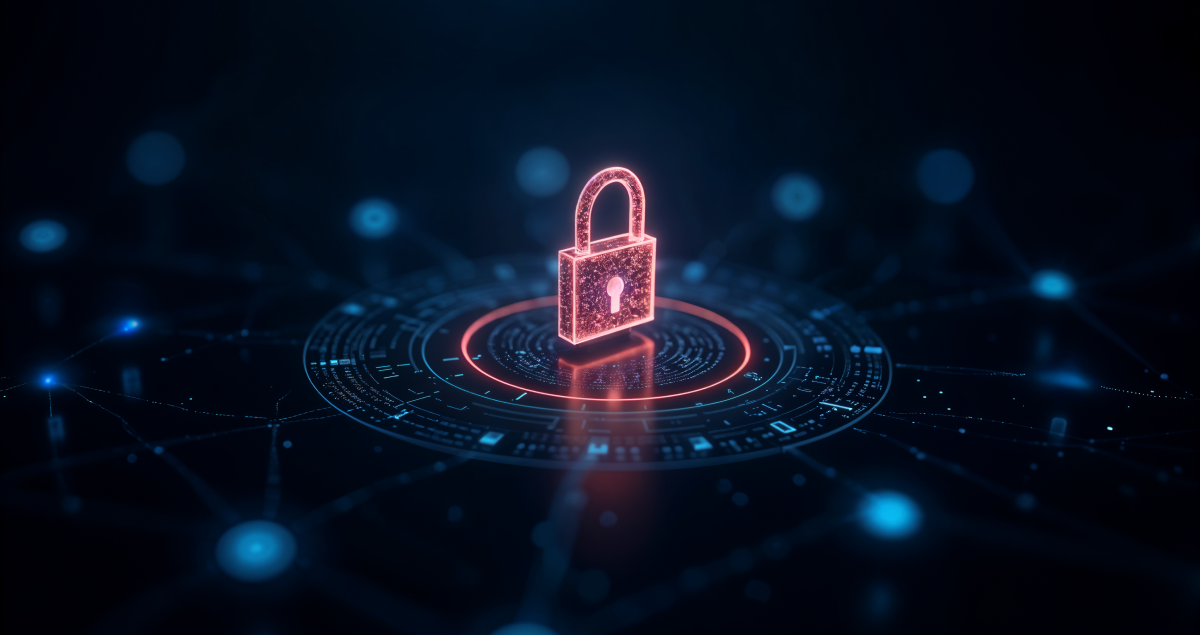
25 Feb, 2025
Blog Decentralized Identity
Blockchain digital identity works fundamentally differently from traditional systems by creating a decentralized framework for identity verification.
Read post

 9 min read
9 min read

 9 min read
9 min read 
21 Feb, 2025
Blog Public Sector
Digital identity solutions are technologies that allow individuals to manage their online identities securely.
Read post

 7 min read
7 min read

 7 min read
7 min read 
18 Feb, 2025
Blog Digital Credential Solutions
Digital identity management faces major challenges in both enterprise and government sectors.
Read post

 10 min read
10 min read

 10 min read
10 min read 
14 Feb, 2025
Blog EVRC Trust
Digital badges are transforming how organizations recognize and validate skills in today's fast-paced professional world.
Read post

 5 min read
5 min read

 5 min read
5 min read 
11 Feb, 2025
Blog Verifiable Credentials
Verifiable digital certificates are changing the way we prove and verify credentials. Traditional certificates, like PDFs, are easy to fake and hard to verify.
Read post

 10 min read
10 min read

 10 min read
10 min read 
07 Feb, 2025
Blog Verifiable Credentials
In today's world, digital identity verification is key to security. As we connect more online, businesses and individuals need a safe way to confirm identities.
Read post

 8 min read
8 min read

 8 min read
8 min read 
04 Feb, 2025
Blog Digital Credential Solutions
Blockchain digital credentials are reshaping how organizations secure sensitive documents in 2025, eliminating forgery, streamlining verification, and replacing archaic paper-based systems with unhackable decentralized solutions.
Read post

 8 min read
8 min read

 8 min read
8 min read 
28 Jan, 2025
Blog Digital Credential Solutions
In today’s digital world, credential solutions help organizations and individuals issue, manage, and verify credentials.
Read post

 9 min read
9 min read

 9 min read
9 min read 
24 Jan, 2025
Blog EVRC Trust
A Digital Trust Ecosystem powered by Blockchain-Based Digital Trust Solutions is no longer optional in our interconnected world; it's fundamental.
Read post

 9 min read
9 min read

 9 min read
9 min read 
21 Jan, 2025
Blog Verifiable Credentials
With urban areas expanding rapidly, Verifiable eTDR offers a sustainable solution. Today, more than 56% of people live in cities, and this number is expected to reach 68% by 2050, according to a United Nations report.
Read post

 9 min read
9 min read

 9 min read
9 min read 
17 Jan, 2025
Blog Digital Credential Solutions EVRC Trust Verifiable Credentials
A digital trust company builds the backbone of business. Digital interactions are the foundation of modern business ecosystems.
Read post

 9 min read
9 min read

 9 min read
9 min read 
13 Jan, 2025
Blog Decentralized Identity
Educational institutions face serious challenges when it comes to verifying credentials, especially with the rise of credential fraud.
Read post

 10 min read
10 min read

 10 min read
10 min read 
10 Jan, 2025
Blog EVRC Trust
Urban planning evolves rapidly, driven by technological advancements and rising urbanization.
Read post

 6 min read
6 min read

 6 min read
6 min read 
07 Jan, 2025
Blog EVRC Trust
Every time you shop online, share personal information or sign a digital contract, there’s an unspoken expectation of security and trust.
Read post

 7 min read
7 min read

 7 min read
7 min read 
03 Jan, 2025
Blog Education
Digital credentials in higher education are in high demand. In 2025, this trend continues with a noticeable increase in enrollment across various programs.
Read post

 5 min read
5 min read

 5 min read
5 min read 
31 Dec, 2024
Blog Education
Academic credential verification is the process of checking whether someone's educational achievements, like degrees, diplomas, or certificates, are genuine and valid.
Read post

 9 min read
9 min read

 9 min read
9 min read 
27 Dec, 2024
Blog Verifiable Credentials
In the era of emerging blockchain solutions in 2025, trust and transparency have become the cornerstones of successful business operations
Read post

 7 min read
7 min read

 7 min read
7 min read 
24 Dec, 2024
Blog Verifier
Fleet management is evolving fast, and staying compliant with regulations is now more important than ever.
Read post

 8 min read
8 min read

 8 min read
8 min read 
19 Dec, 2024
Blog Verifiable Credentials
Digital identity verification is a key part of our digital world, and its importance keeps growing. A report by Juniper Research predicts that over 70 billion digital identity checks will happen in 2024.
Read post

 7 min read
7 min read

 7 min read
7 min read 
16 Dec, 2024
Blog Education
Decentralized identity in education is totally changing the way institutions manage student data and credentials.
Read post

 6 min read
6 min read

 6 min read
6 min read 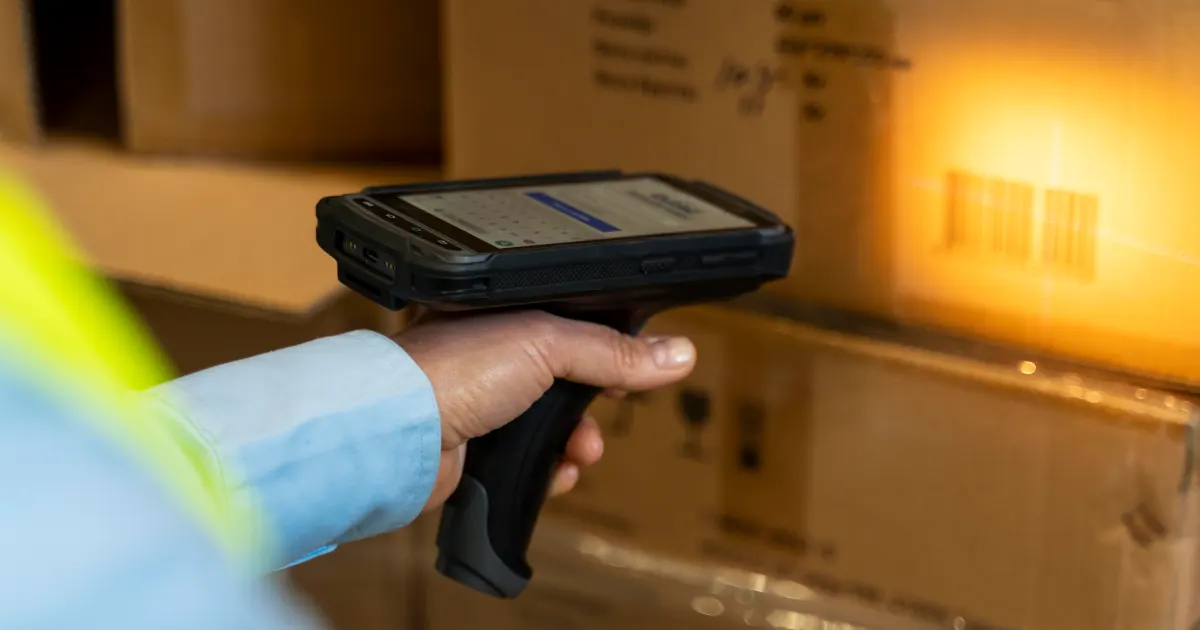
13 Dec, 2024
Blog Decentralized Identity
Do you know why we need a better system for digital identity in logistics? The logistics industry finds itself at a critical juncture.
Read post

 7 min read
7 min read

 7 min read
7 min read 
10 Dec, 2024
Blog Verifiable Credentials
The adoption of technology in almost all sectors allows us to showcase our digital credentials (digital copies of documents) to multiple parties.
Read post

 7 min read
7 min read

 7 min read
7 min read 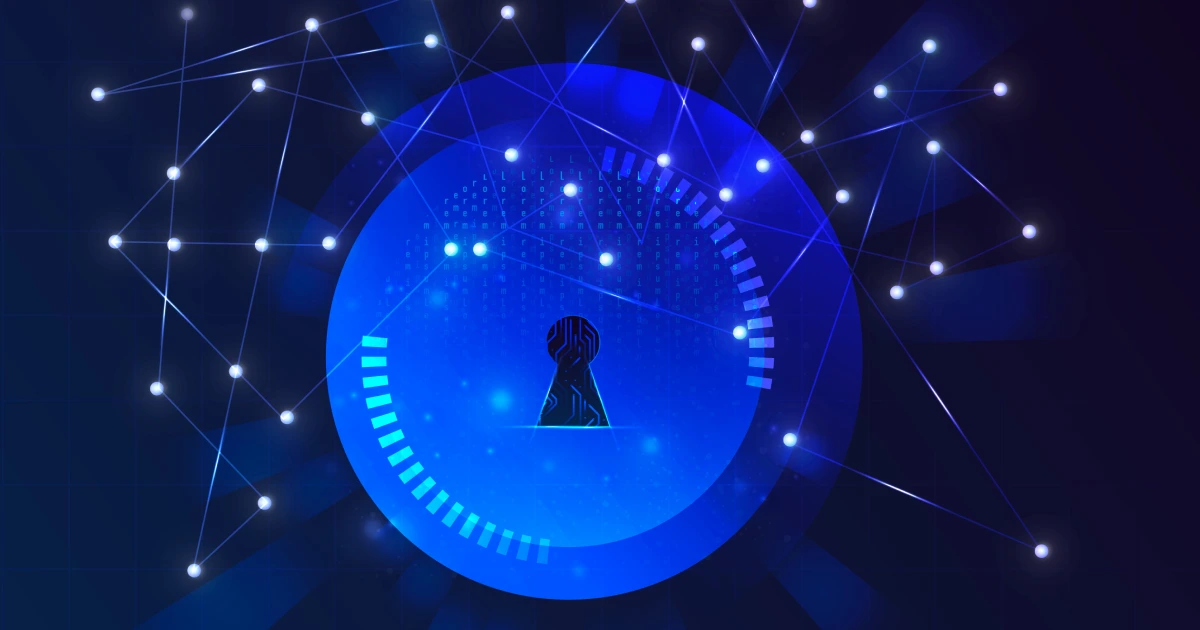
04 Dec, 2024
Blog Decentralized Credentials
Blockchain for Digital Identity is transforming the way we manage credentials and identification. Digital identification and credentials make life easier for everyone.
Read post

 7 min read
7 min read

 7 min read
7 min read 
29 Nov, 2024
Blog Decentralized Credentials
Digital credential verification is changing how people show their skills, qualifications, and accomplishments.
Read post

 10 min read
10 min read

 10 min read
10 min read 
27 Nov, 2024
Blog Decentralized Credentials Education Healthcare
Professional license verification is a critical process for businesses, especially those in industries where specific certifications are necessary for job functions.
Read post

 7 min read
7 min read

 7 min read
7 min read 
25 Nov, 2024
Blog Finance
Verifiable credentials (VCs) are a modern solution to tackle one of the biggest challenges facing the finance industry: fraud.
Read post

 9 min read
9 min read

 9 min read
9 min read 
20 Nov, 2024
Blog Education
Academic credential verification has become a very important process for businesses, educational institutions, and employers around the world.
Read post

 6 min read
6 min read

 6 min read
6 min read 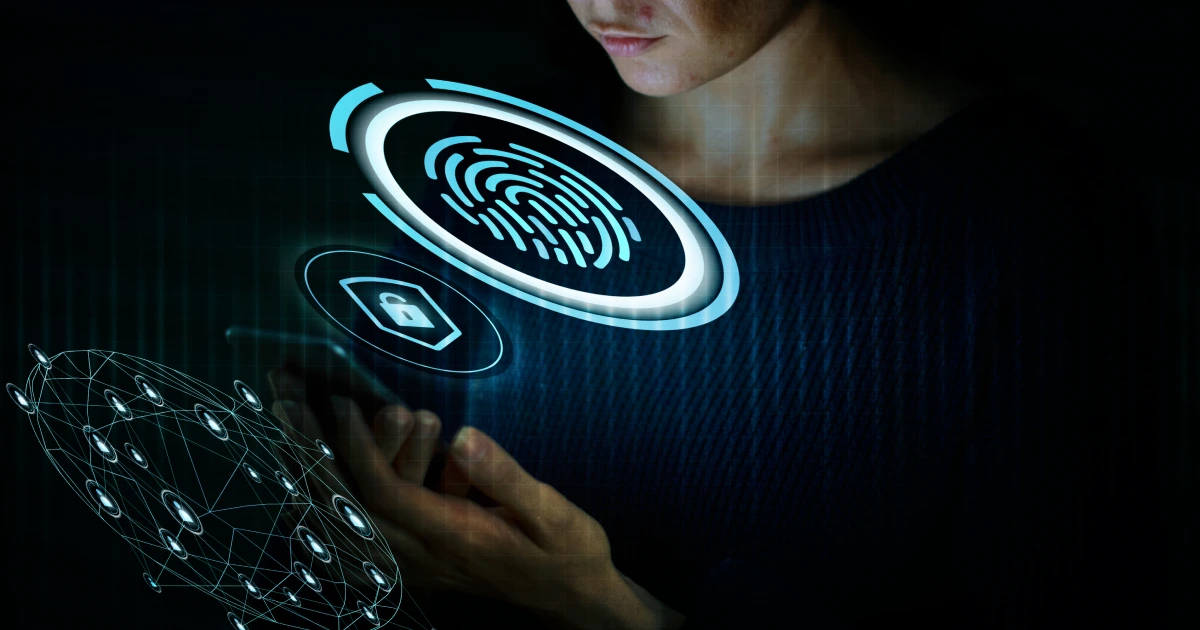
15 Nov, 2024
Blog Decentralized Credentials
Nowadays, ensuring that individuals are who they claim to be is very important for businesses as well as the government.
Read post

 9 min read
9 min read

 9 min read
9 min read 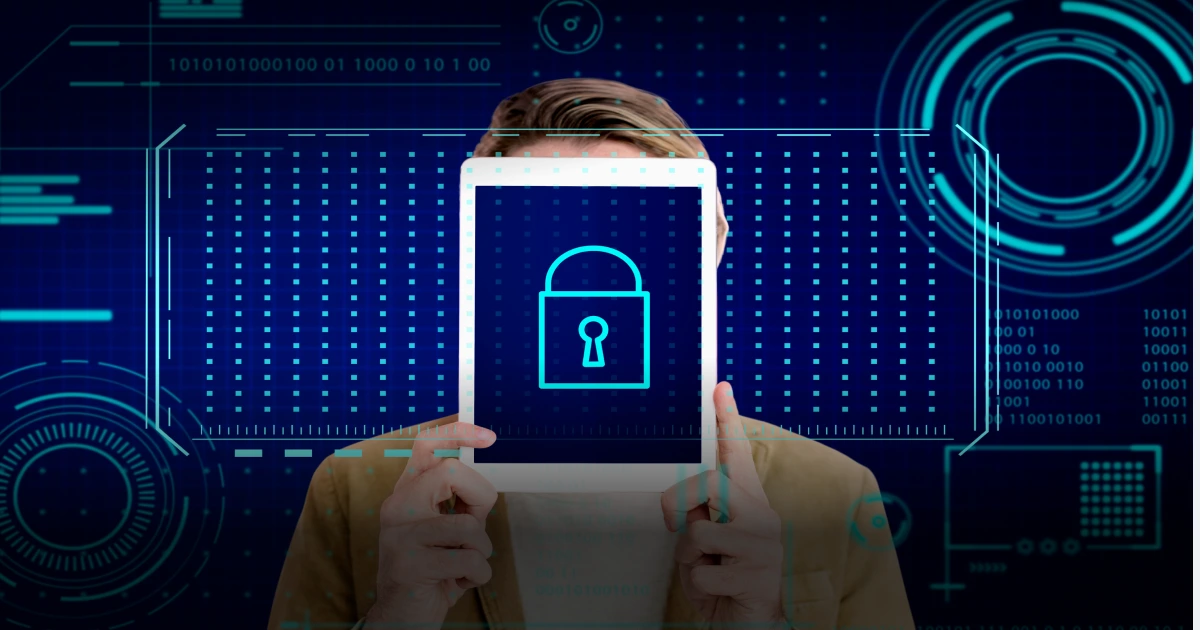
12 Nov, 2024
Blog Verifiable Credentials
However, when kids have easy access to smartphones, the internet, and social media, ensuring the safety of minors online has become a primary concern for parents, regulators, and online service providers.
Read post

 5 min read
5 min read

 5 min read
5 min read 
08 Nov, 2024
Blog Verifiable Credentials
In 2024, financial crimes have not only continued to plague the economy but have also become very sophisticated.
Read post

 5 min read
5 min read

 5 min read
5 min read 
05 Nov, 2024
Automobile Blog
If you have been paying attention to the digital transformation feed, you might have noticed the automotive industry has been digitized with increasing reliance on online sales.
Read post

 7 min read
7 min read

 7 min read
7 min read 
30 Oct, 2024
Blog Decentralized Credentials Supply Chain
The use of digital credentials in manufacturing processes has become a very revolutionary and transformative force for the whole industry.
Read post

 6 min read
6 min read

 6 min read
6 min read 
28 Oct, 2024
Blog Decentralized Identity Healthcare Verifiable Credentials
The healthcare industry is experiencing a solid digital transformation as Verifiable Credentials in Healthcare emerge as a revolutionary solution
Read post

 7 min read
7 min read

 7 min read
7 min read 
22 Oct, 2024
Blog Decentralized Identity
The logistics industry is being revolutionized with digital transformation solutions and artificial intelligence.
Read post

 7 min read
7 min read

 7 min read
7 min read 
20 Oct, 2024
Automobile Blog Supply Chain Verifiable Credentials
With goods or products crossing multiple borders and changing carriers multiple times before reaching end-users, global supply chains have become complex.
Read post

 6 min read
6 min read

 6 min read
6 min read 
15 Oct, 2024
Blog Education
The education sector has been witnessing tremendous changes in the last few years with emerging innovative technologies.
Read post

 5 min read
5 min read

 5 min read
5 min read 
10 Oct, 2024
Blog Verifiable Credentials
The logistics industry faces several challenges in maintaining security, efficiency, and trust across complex global supply chains.
Read post

 10 min read
10 min read

 10 min read
10 min read 
08 Oct, 2024
Blog Education Verifiable Credentials
Educational qualifications play an important role in securing employment and advancing careers. However, the rise in certificate fraud has undermined the integrity of the education system and eroded trust in academic credentials.
Read post

 8 min read
8 min read

 8 min read
8 min read 
04 Oct, 2024
Blog Healthcare
Digitization has helped the healthcare industry in many ways, but still several healthcare providers face challenges in managing and securing patient data.
Read post

 6 min read
6 min read

 6 min read
6 min read 
27 Sep, 2024
Blog Education
From using physical credentials (documents) everywhere to widespread acceptance of digital credentials, we have come a long way.
Read post

 6 min read
6 min read

 6 min read
6 min read 
24 Sep, 2024
Blog Healthcare
The new wave of digital transformation is revolutionizing every industry, and healthcare is no exception.
Read post

 7 min read
7 min read

 7 min read
7 min read 
20 Sep, 2024
Automobile Blog
The automotive industry has been witnessing a digital transformation over the last few years as modern vehicles are evolving into connected, intelligent systems.
Read post

 8 min read
8 min read

 8 min read
8 min read 
17 Sep, 2024
Automobile Blog
Cars are no longer just machines that take us from point A to point B. They have become smart, connected devices on wheels, constantly communicating with the world around us.
Read post

 6 min read
6 min read

 6 min read
6 min read 
13 Sep, 2024
Blog Education Verifiable Credentials
The latest technologies like artificial intelligence, virtual reality, augmented reality, and many others are transforming the education sector.
Read post

 7 min read
7 min read

 7 min read
7 min read 
10 Sep, 2024
Blog Healthcare Verifiable Credentials
The healthcare industry is changing fast, and new technologies are playing a big role in this change.
Read post

 6 min read
6 min read

 6 min read
6 min read 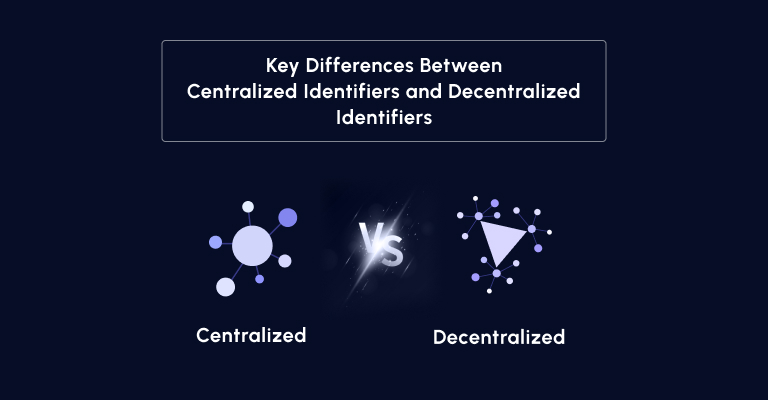
06 Sep, 2024
Blog Decentralized Identity
Today, when sophisticated cyber-attacks target big companies successfully and as more of our data moves online, the need for secure and user-controlled identity solutions is very critical.
Read post

 7 min read
7 min read

 7 min read
7 min read 
03 Sep, 2024
Blog Verifiable Credentials
Nowadays, verifying credentials (documents) or identity is very important. Advanced software and sophisticated tools have made it possible for fraudsters to create fake documents or identities.
Read post

 8 min read
8 min read

 8 min read
8 min read 
31 Aug, 2024
Blog Supply Chain Verifiable Credentials
Supply chain management is a complete centralized management of the flow of all goods and services involved in all processes of creating final products from raw materials.
Read post

 6 min read
6 min read

 6 min read
6 min read 
28 Aug, 2024
Blog Decentralized Identity
Keeping your personal information safe is more important than ever nowadays. ITRC’s data breach report states how our data can get stolen.
Read post

 6 min read
6 min read

 6 min read
6 min read 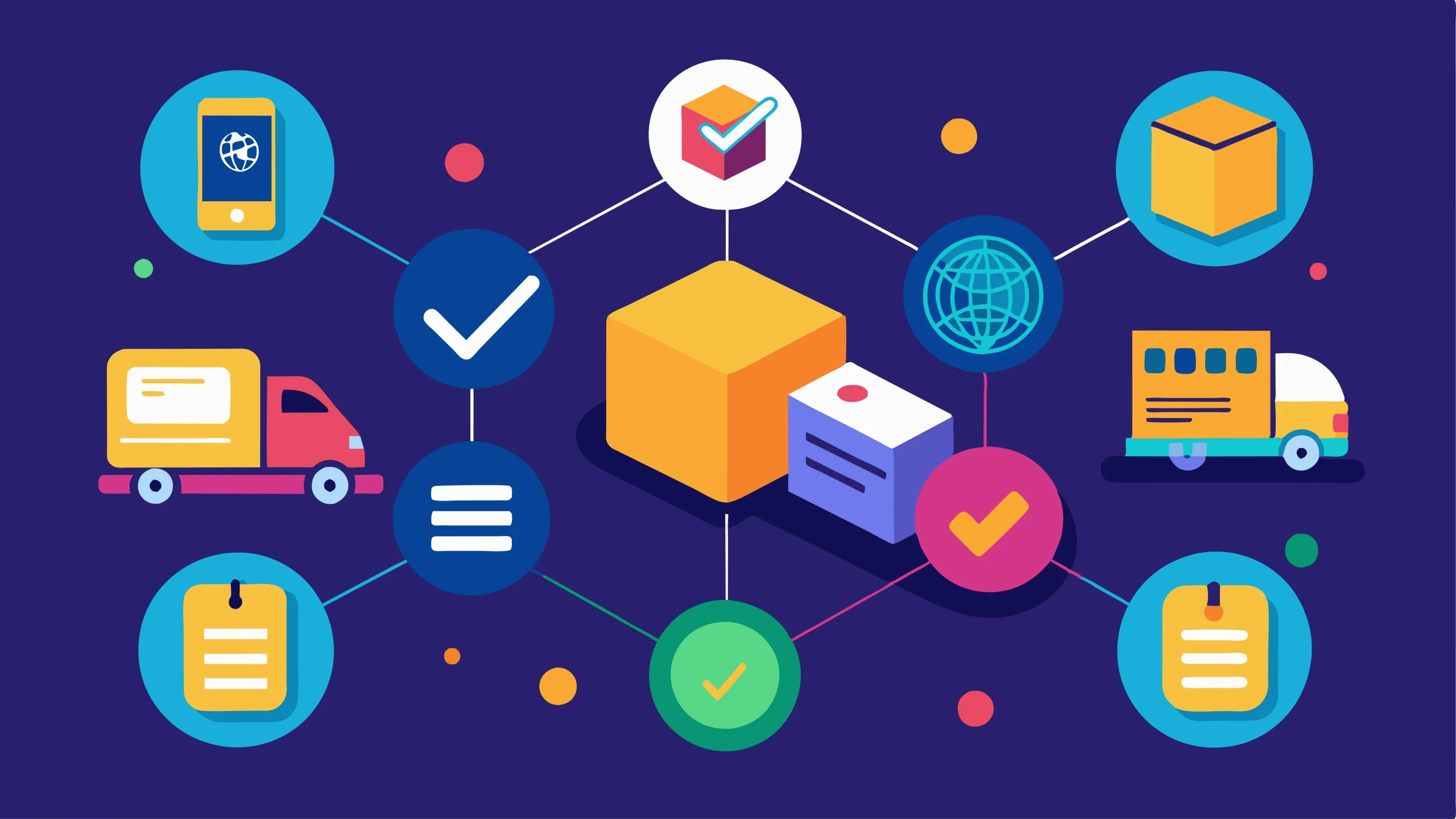
23 Aug, 2024
Blog Decentralized Credentials Supply Chain Verifiable Credentials
Data suggests that more than 90% of customers would like to be loyal to brands that are transparent about their operations.
Read post

 6 min read
6 min read

 6 min read
6 min read 
20 Aug, 2024
Blog Cybersecurity Verifiable Credentials
Verifiable credentials (VCs) are now becoming an essential tool in cybersecurity. They offer secure and privacy-preserving methods for digital identity verification.
Read post

 6 min read
6 min read

 6 min read
6 min read 
16 Aug, 2024
Blog Decentralized Identity
Now that we all have internet access, our identities are scattered across many online services. We have to create and manage multiple accounts, each with a username, password, and personal information.
Read post

 6 min read
6 min read

 6 min read
6 min read 
13 Aug, 2024
Blog Decentralized Identity
Decentralized identity has become more important for developers than ever. Many reasons push us toward the adoption of a decentralized identity.
Read post

 6 min read
6 min read

 6 min read
6 min read 
11 Aug, 2024
Blog Supply Chain Verifiable Credentials
Modern, educated customers want to know how the products they consume are produced and distributed. Being transparent in the supply chain can attract more customers.
Read post

 7 min read
7 min read

 7 min read
7 min read 
06 Aug, 2024
Blog Cybersecurity Education Finance Healthcare Industry Public Sector Verifiable Credentials
In recent years, the acceptance of digital documents has increased. Let’s say we are driving in a different city without a physical copy of the driver’s license.
Read post

 7 min read
7 min read

 7 min read
7 min read 
29 Jul, 2024
Blog Cybersecurity Decentralized Credentials Education Finance Healthcare Industry Public Sector Supply Chain
A recent study claims that by 2032, the decentralized identity market is projected to reach $371.08 billion.
Read post

 8 min read
8 min read

 8 min read
8 min read 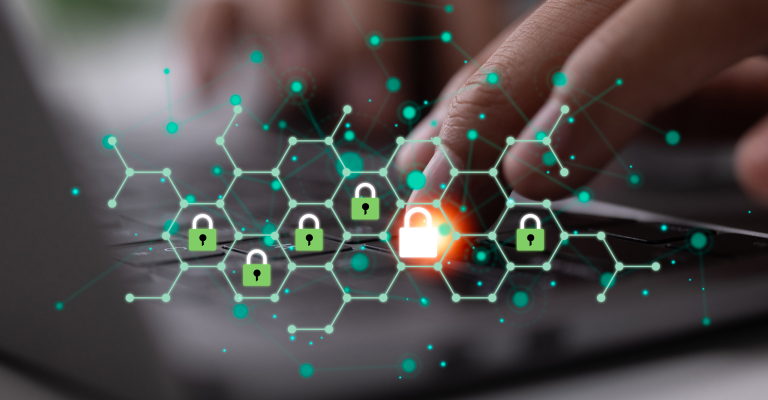
24 Jul, 2024
Blog Cybersecurity Education Finance Healthcare Industry Public Sector Supply Chain Verifiable Credentials
Sharing and proving our identity, qualifications, and other certificates goes by the leap of faith we have in each other.
Read post

 9 min read
9 min read

 9 min read
9 min read 
19 Jul, 2024
Blog Cybersecurity Decentralized Credentials Decentralized Identity Education Finance Healthcare Industry Issuer Public Sector Supply Chain Verifiable Credentials Verifier
Isn’t it amazing that when we turn 18, we receive a national ID card that can be used at various places and makes everything easy?
Read post

 11 min read
11 min read

 11 min read
11 min read 
16 Jul, 2024
Blog Cybersecurity Decentralized Credentials Education Finance Healthcare Industry Public Sector Supply Chain
Managing and verifying identities online has become more important than ever before. We often use various online accounts and services that require us to prove our identity.
Read post

 11 min read
11 min read

 11 min read
11 min read 
11 Jul, 2024
Blog Cybersecurity Decentralized Credentials Decentralized Identity Education Finance Healthcare Public Sector Supply Chain Topic Verifiable Credentials
In a world full of technologies where a single click can make or break trust, how can we avoid digital deception?
Read post

 6 min read
6 min read

 6 min read
6 min read 
19 Jun, 2024
Blog Cybersecurity Decentralized Credentials Decentralized Identity Education EVRC Trust Finance Healthcare Public Sector Supply Chain
DIDs pave the way for a more secure and user-centric approach to digital identity management.
Read post

 7 min read
7 min read

 7 min read
7 min read 
13 Jun, 2024
Blog Cybersecurity Decentralized Credentials SSI Verifiable Credentials
Unprecedented control and privacy over personal data, its journey towards widespread adoption presents both challenges and opportunities.
Read post

 5 min read
5 min read

 5 min read
5 min read 
11 Jun, 2024
Blog Decentralized Credentials Decentralized Identity Verifiable Credentials
Two groundbreaking concepts, decentralized identity and verifiable credentials, are poised to revolutionize the digital landscape.
Read post

 5 min read
5 min read

 5 min read
5 min read 
17 Nov, 2023
Blog Decentralized Credentials Issuer
When Information is shared and accessed at lightning speed, having a reliable and secure credential verification system is more important than ever.
Read post

 5 min read
5 min read

 5 min read
5 min read 
10 Nov, 2023
Blog Cybersecurity Decentralized Credentials Verifiable Credentials
Data works as a new currency, in this digitalized world. So, securing credentials and identity is essential.
Read post

 6 min read
6 min read

 6 min read
6 min read 
10 Nov, 2023
Blog Cybersecurity Decentralized Identity SSI Verifiable Credentials
Post the covid lockdown, everything started getting digitalized at an accelerated pace, to make things easier and faster for users.
Read post

 6 min read
6 min read

 6 min read
6 min read 
Got a question or want to talk about your business? We have genuine humans who are keen to hear from you.
Send us a message

